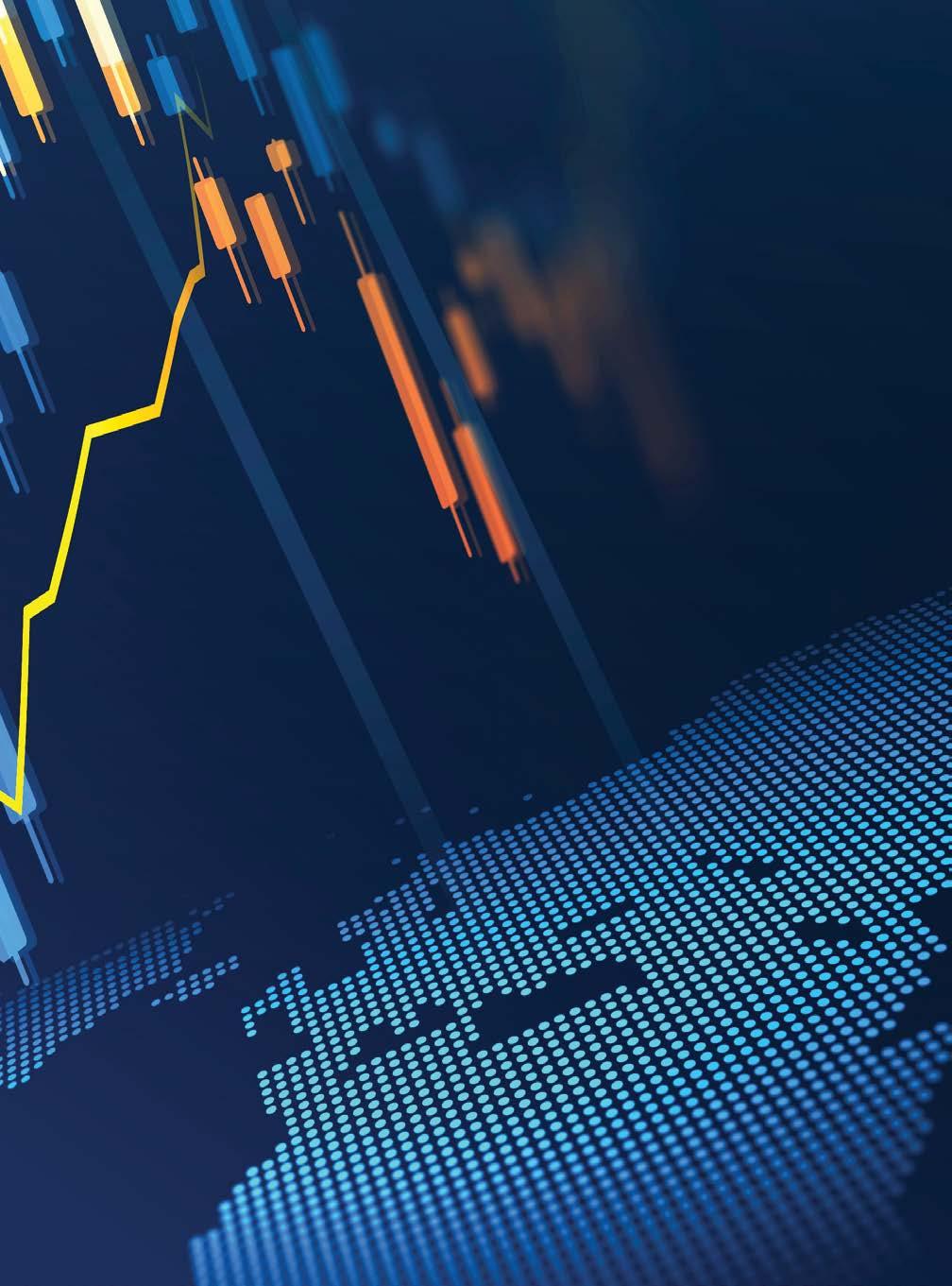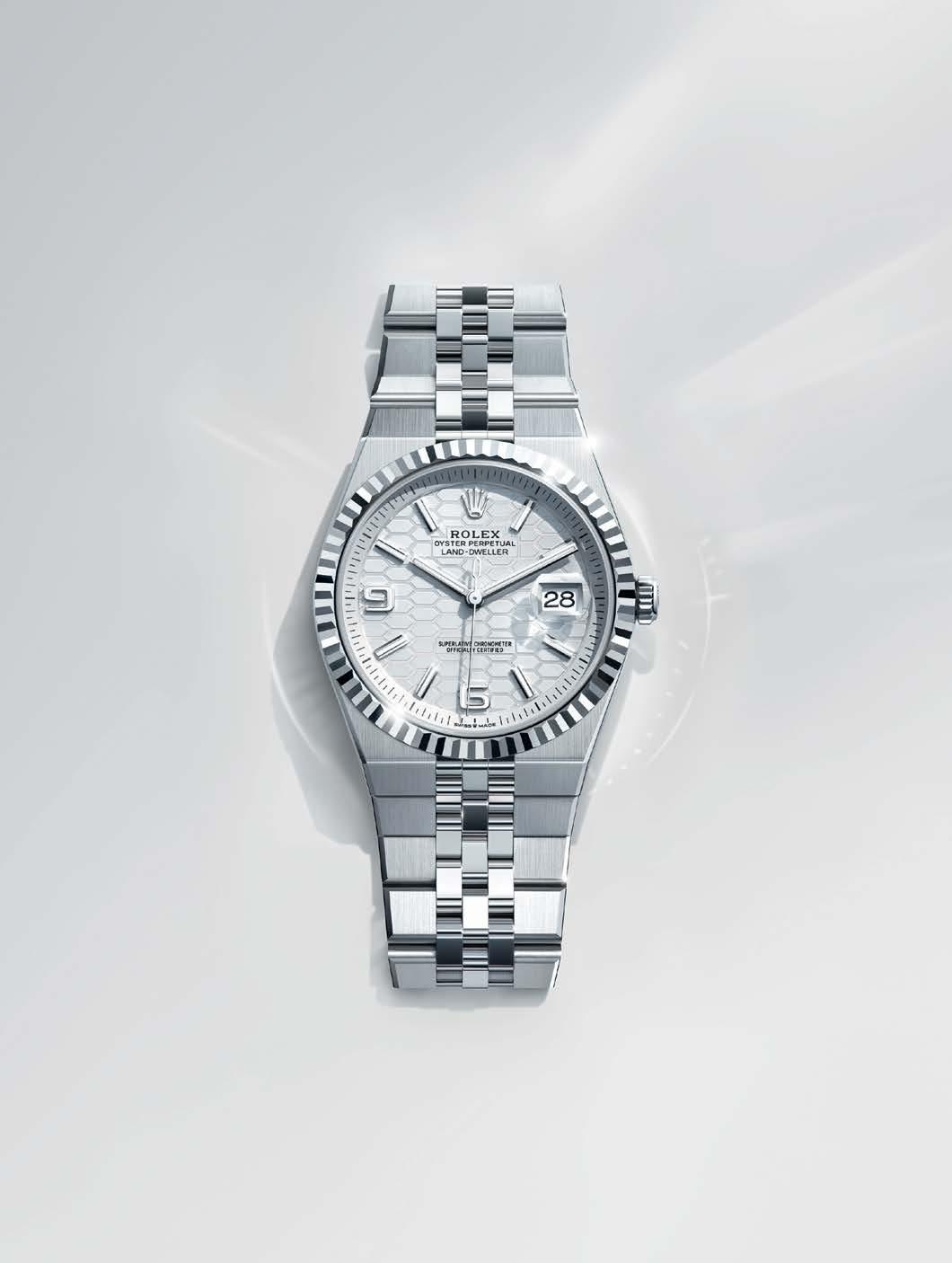ROOTS REIMAGINED/ Katya
Kovtunovich P.38
BEYOND HOSPITALITY/ Mehmet Tulunay, General Manager, Rixos Marina Abu Dhabi P.50
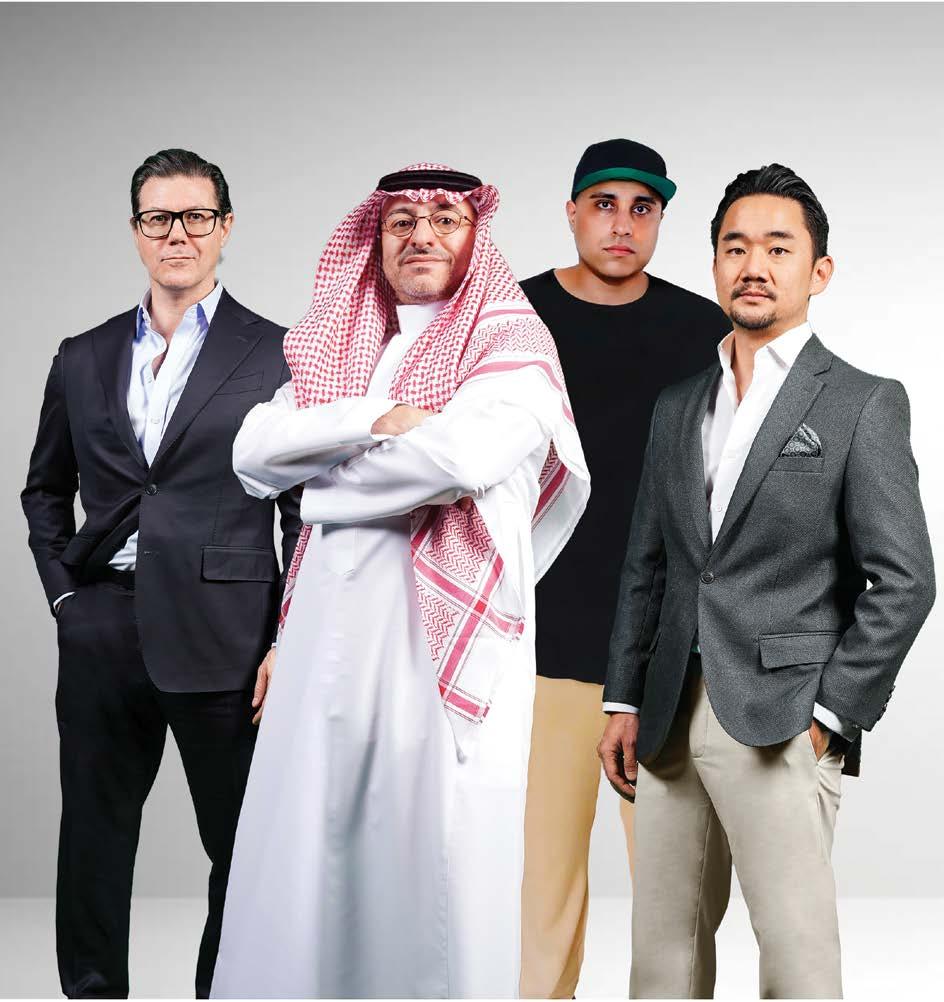
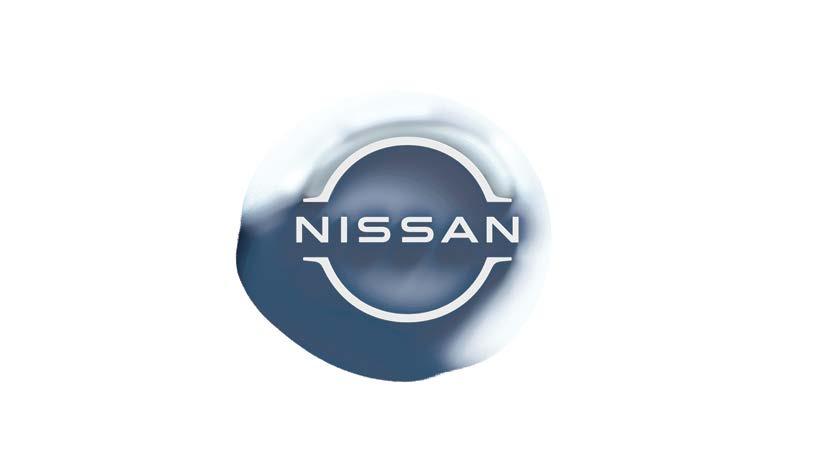



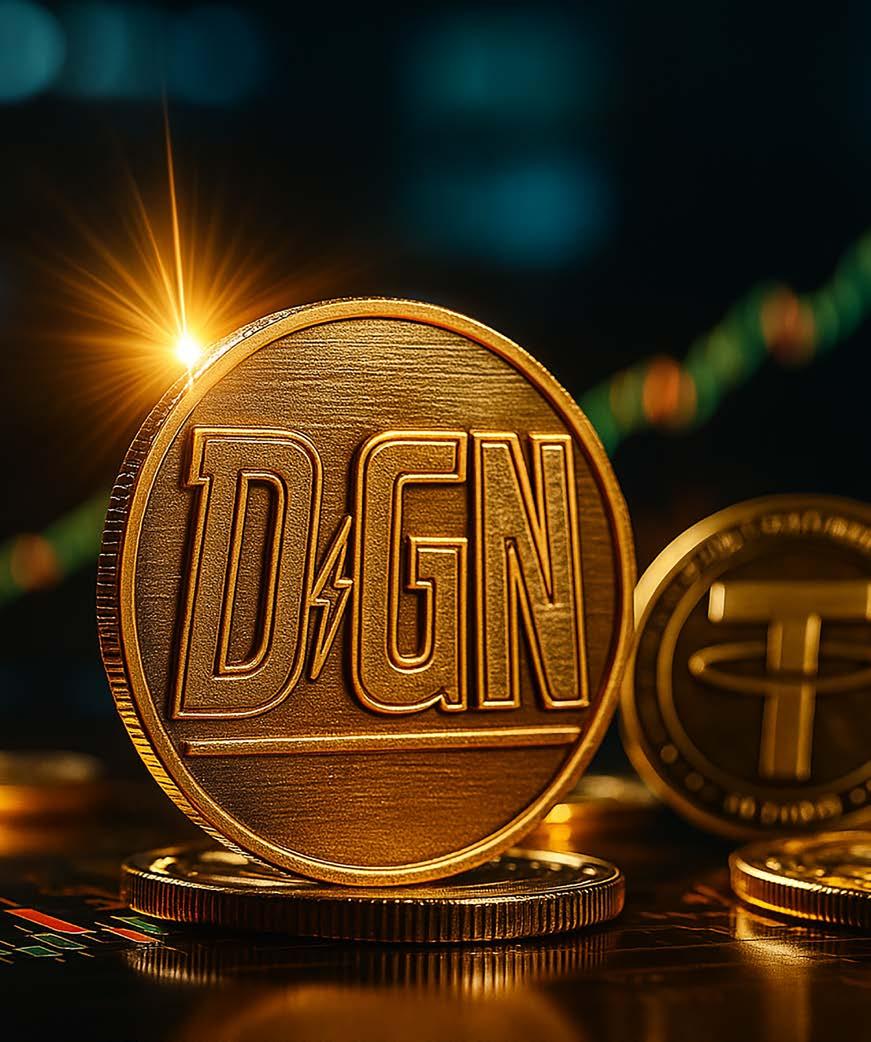
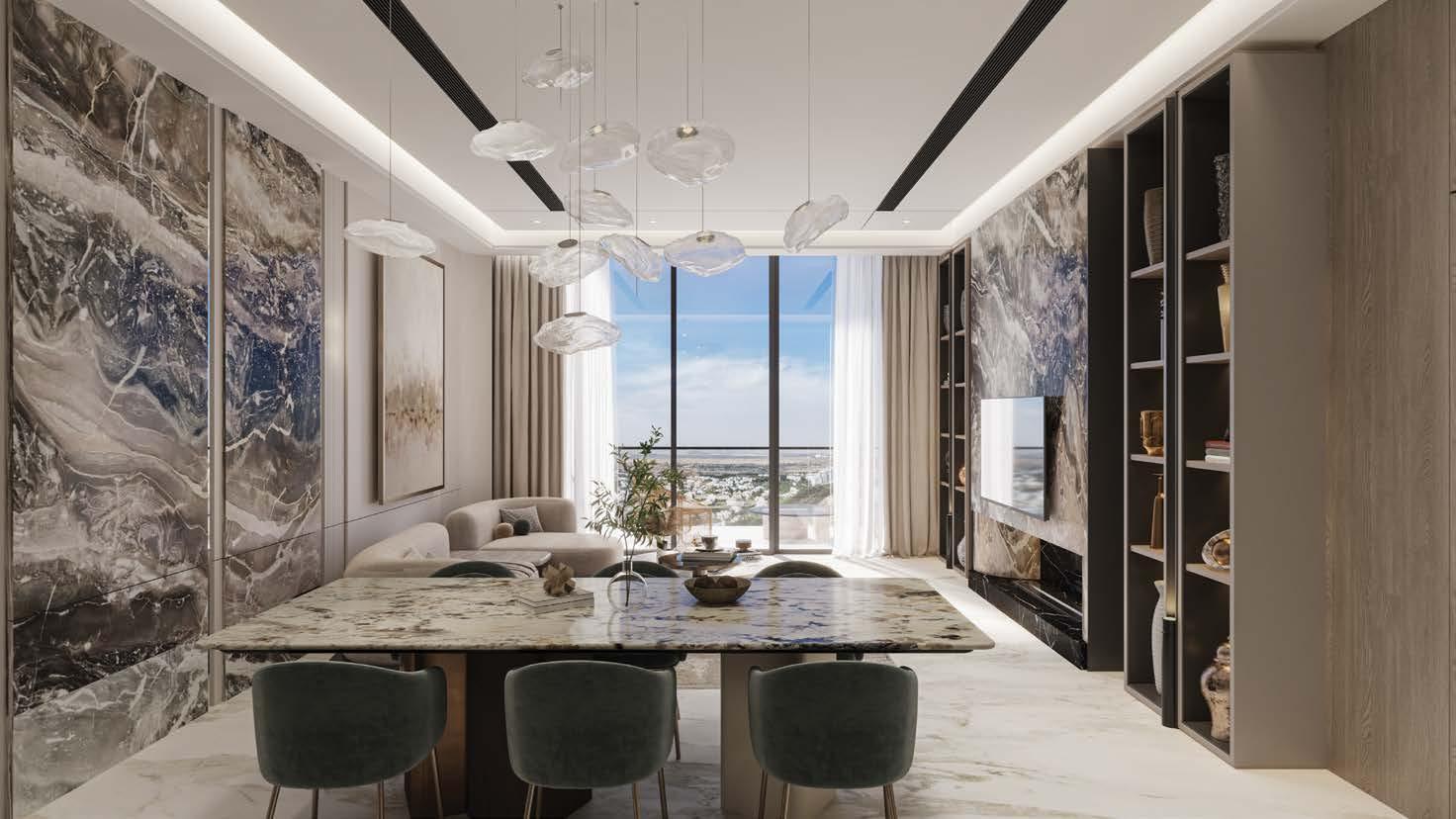


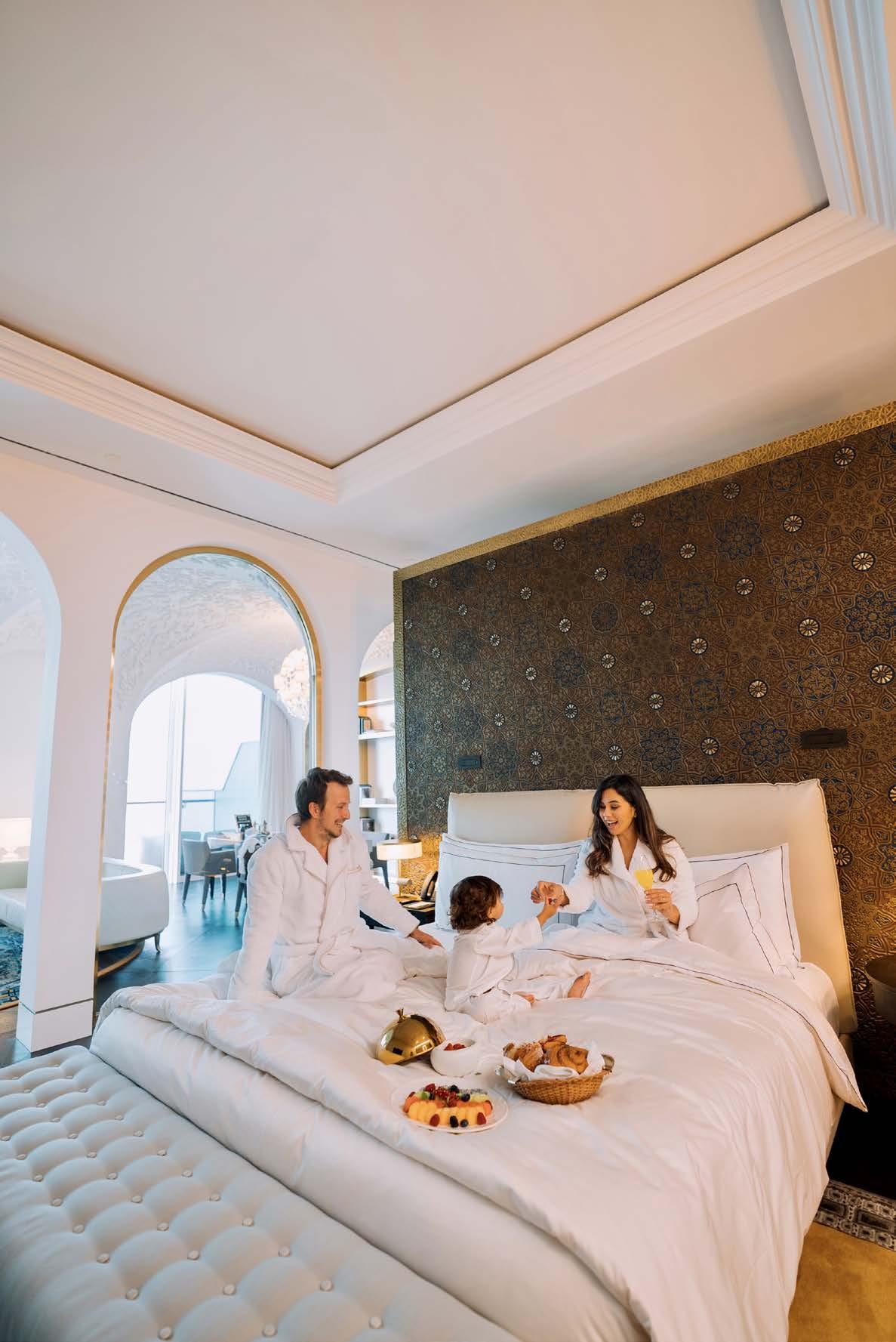


ROOTS REIMAGINED/ Katya
Kovtunovich P.38
BEYOND HOSPITALITY/ Mehmet Tulunay, General Manager, Rixos Marina Abu Dhabi P.50











Step into a world of opulence when you book a Suite at Raffles Doha.
Experience the added luxury of QAR 750 credit to spend on dining in the hotel, and QAR 500 towards any Spa treatment.
Children aged 12 and below are welcome to indulge in the enchantment of complimentary dining.
Rates starting from QAR 3,500 per night
For reservations, please call +974 4030 7100 or email reservations.doha@raffles.com
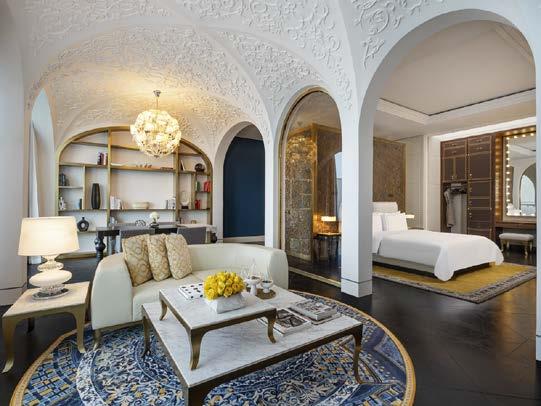
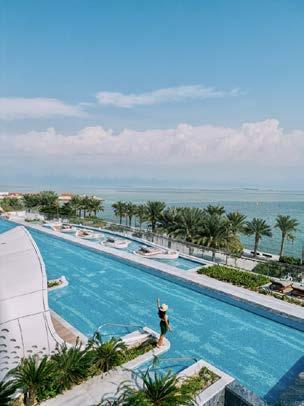
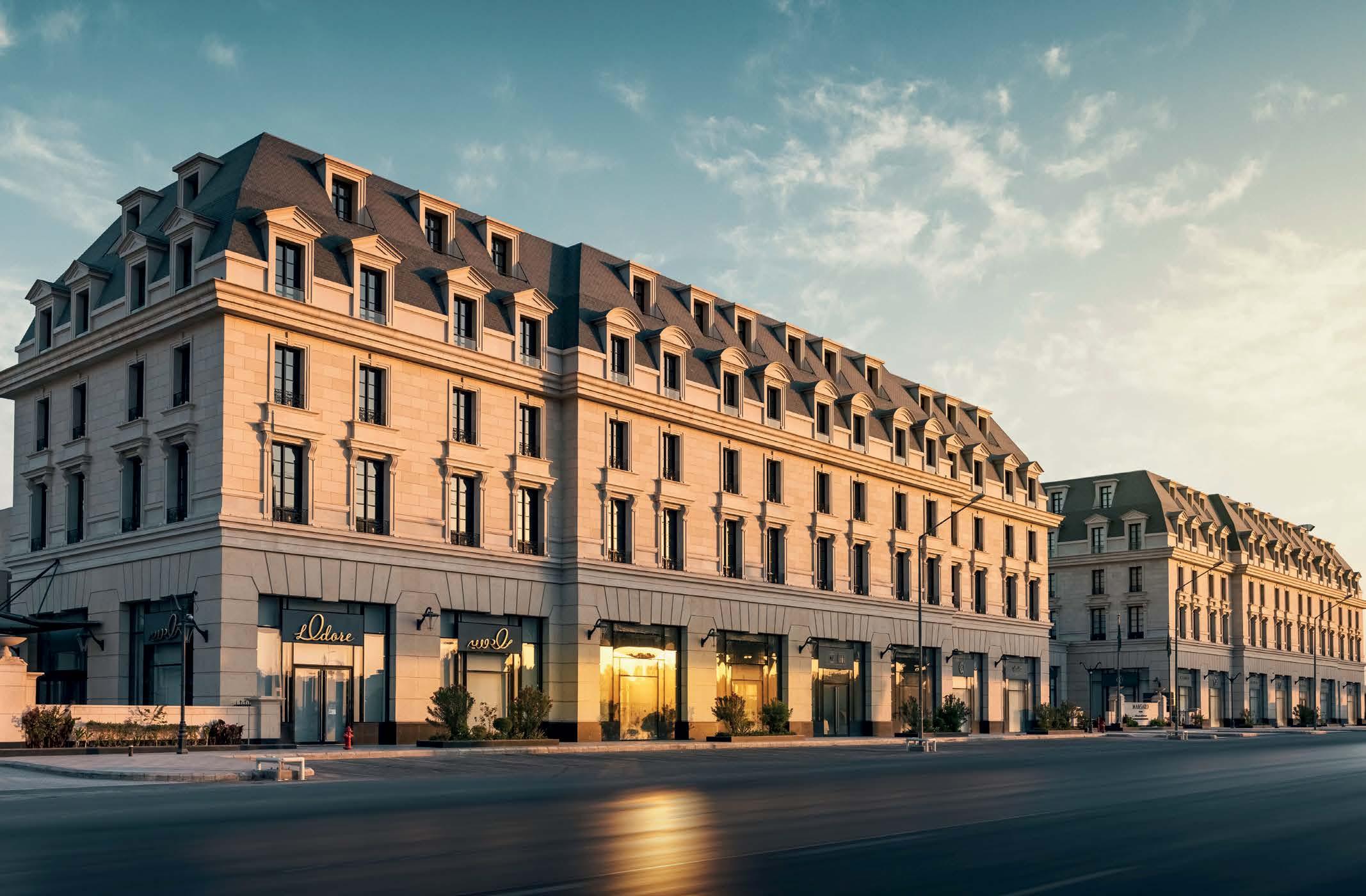



→ ANGELA KLASS helps entrepreneurs make their mark in the digital space through the power of AI.

P.15 When Plans Fell Through, She Pivoted to AI—and Found Her Next Big Break
How ANGELA KLASS is helping others future-proof their operations in a world where staying ahead means thinking smarter.
P.38 Designing A Cultural Renaissance
How KATYA KOVTUNOVICH’S fashion label turned the traditional UAE Sadu fabric as a means to bridge the world with Emirati culture.
P.22 Cutting Through Cobwebs
UAE-based MS CONSULTING is helping organizations untangle the complexities of building ESG frameworks.
P.50 Leading with Heart and Precision
RIXOS MARINA Abu Dhabi’s GM MEHMET TULUNAY reveals the secrets that drive the resort’s extraordinary growth.
P.46 Purposeful Investment
Inside SHUROOQ’S model of enterprise-driven development, where infrastructure meets opportunity and entrepreneurship is shaped by design, not chance.
P.61 Unlocking Possibilities
How KARIN DRANE built a multimillion dollar empire.
P.66 “We Got Funded!”
Shake Your Plants secure SHARK TANK funding
P.68 UAE Future 50 Unveiled
H.H. SHEIKH HAMDAN champions innovation at UAE Future 50 Launch Ceremony.
CEO Wissam Younane wissam@bncpublishing.net
MANAGING DIRECTOR Rabih Najm rabih@bncpublishing.net
ART DIRECTOR Simona El Khoury
EDITOR IN CHIEF Anil Bhoyrul anil@bncpublishing.net
MANAGING EDITOR Tamara Pupic tamara@bncpublishing.net
FEATURES EDITOR Aalia Mehreen Ahmed aalia@bncpublishing.net
REGIONAL DIRECTOR
Mahdi Hashemi mahdi@bncpublishing.net
DIRECTOR OF INNOVATION
Sarah Saddouk sarah@bncpublishing.net
GROUP SALES DIRECTOR – B2B GROUP Joaquim D’Costa jo@bncpublishing.net
HEAD OF PARTNERSHIPS Samir Glor Samir@bncpublishing.net
COMMERCIAL LEAD Anna Chipala anna@bncpublishing.net
COLUMNIST Tamara Clarke
CONTRIBUTING WRITERS Fida Chaaban
SUBSCRIBE
Contact subscriptions@bncpublishing.net to receive Entrepreneur Middle East every issue
COMMERCIAL ENQUIRIES sales@bncpublishing.net
ENTREPRENEUR.COM
Access fresh content daily on our website
EntMagazineME Entrepreneur-me
PO BOX 502511 DUBAI, UAE P +971 4 4200 506
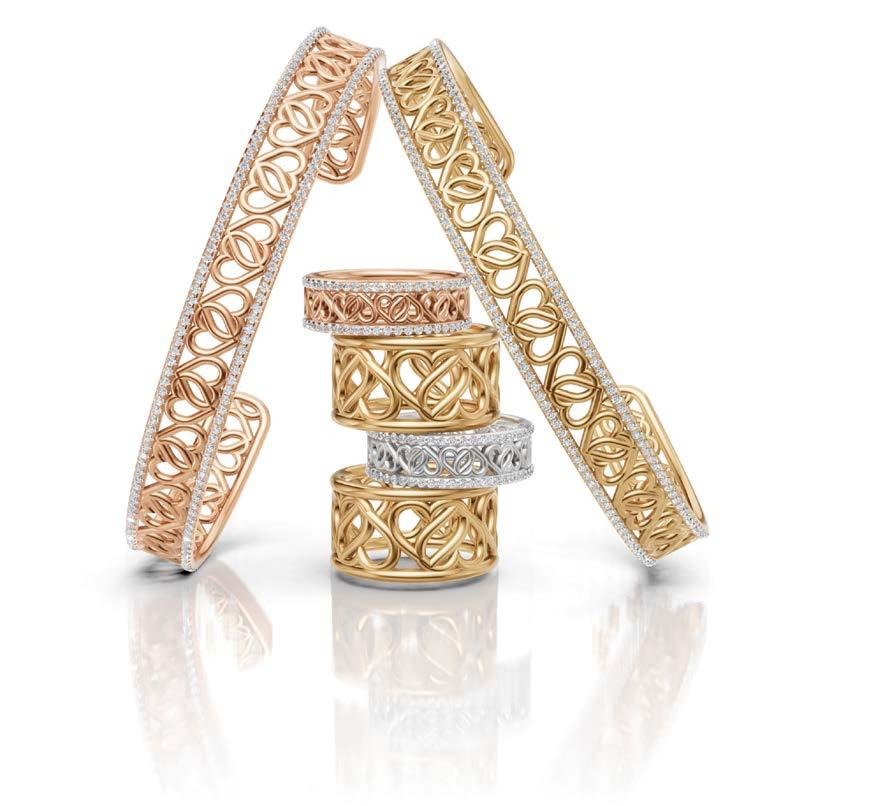
Enlighten Your Eternal Beauty, Inside and Out!
@muarjewels www.muarjewels.com
info@muarjewels.com

53% of employees say they would consider quitting if asked to increase their in-office presence, emphasizing the ongoing demand for flexible work arrangements
The new survey on employment sentiment in the UAE, by Michael Page, a global recruitment consultancy, makes fascinating reading.
“Despite economic uncertainty, 77%of professionals in the UAE are actively exploring new job opportunities, a sharp rise from 65% in 2024,” the survey said.
Basically a polite way of saying the majority of your colleagues (and probably you as well) are job hunting.
“Companies that can offer clear answers to the pressing questions of today’s professionals are better positioned to stand out in a complex talent market,” the survey said.
It added that recent years have brought dramatic shifts in workplace dynamics in the country, fueled by
evolving priorities, new expectations, and rapid AI advancements.
But here is the really key bit: while only 34% currently work hybrid, 53% of employees say they would consider quitting if asked to increase their in-office presence, emphasizing the ongoing demand for flexible work arrangements, it said.
Unless I read that wrong, what this is saying is that the majority of people would give up their job, and step into the unknown, rather than having to consider actually coming into work.
I know there are multiple views on this. But the main point I believe is that companies need to be clear from the outset what their policy is, otherwise, it leads to a muddled work environment where nobody is quite sure who is where and what they are doing.
This is especially true is companies with over 200 staff, where communication break downs between those in and out of the office are more common. I have heard many stories of fairly large organizations – some with over 500 staff – where at least 10% are often believed to be “missing.” The bigger the organization, the easier it is to disappear from everything but the payroll.
“The message from UAE professionals is loud and clear. They want clear answers, purpose, trust, flexibility, and future-focused leadership, said Jon Ede, Regional Director UAE at Michael Page.
He couldn’t be more right. But in my view, home working policies can be very effective – until companies reach a certain scale, probably the 200 staff mark.
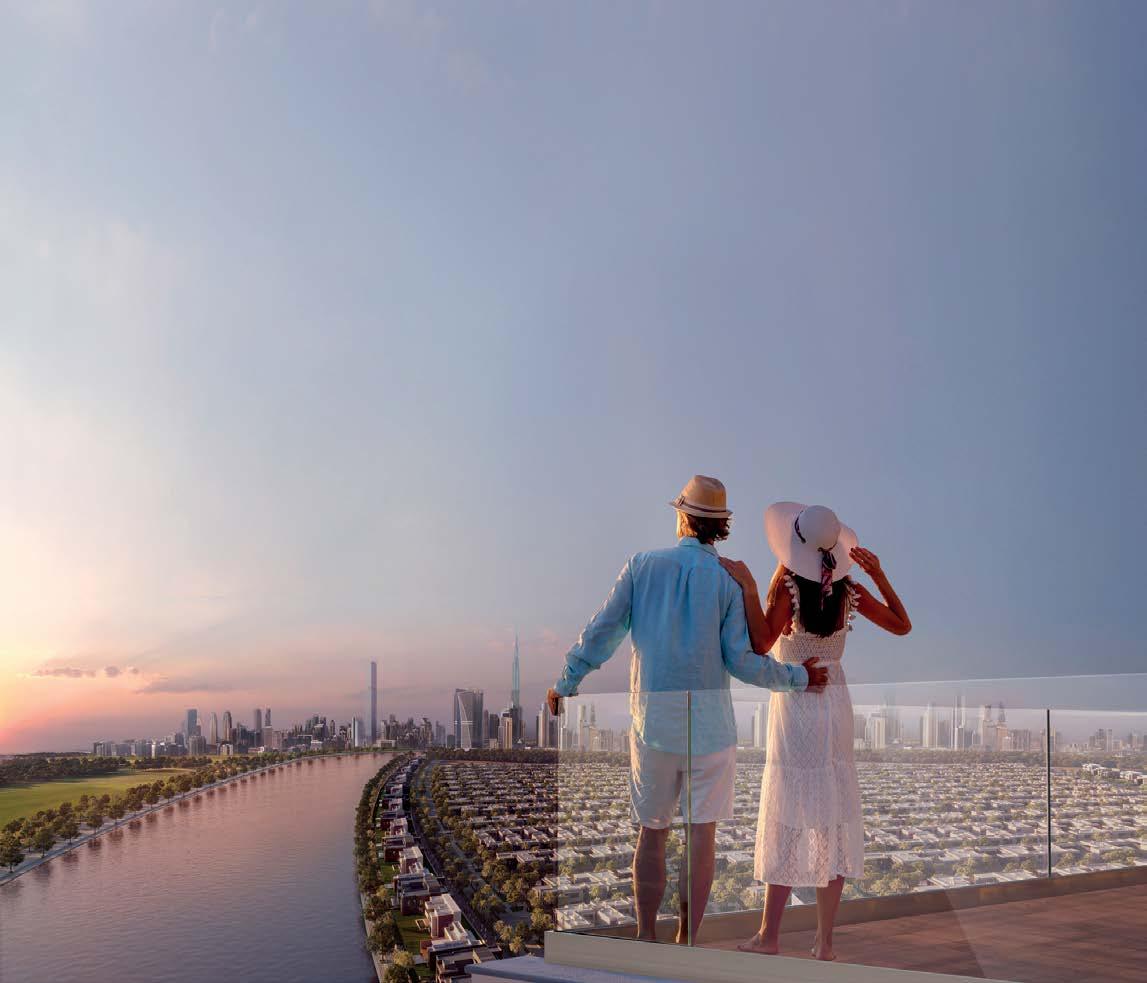
Anil Bhoyrul Editor-in-Chief


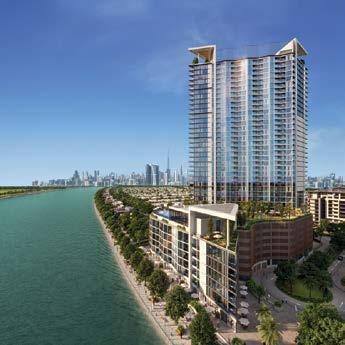


→ ANGELA KLASS has made it her mission to help entrepreneurs and brands scale their presence, simplify production, and make their mark in the digital space — all through the power of AI.

and Found Her Next Big Break
With a rare blend of technical insight and business acumen, Angela Klass is helping others future-proof their operations in a world where staying ahead means thinking smarter.
by
TAMARA PUPIC

German entrepreneur Angela Klass caught the artificial intelligence (AI) wave early on- actually, she immersed herself in the technology just in time and made it her specialty right on time. In 2022, AI adoption by businesses was less than 50%, but it was then that Klass started exploring AI tools, automation, and media production.
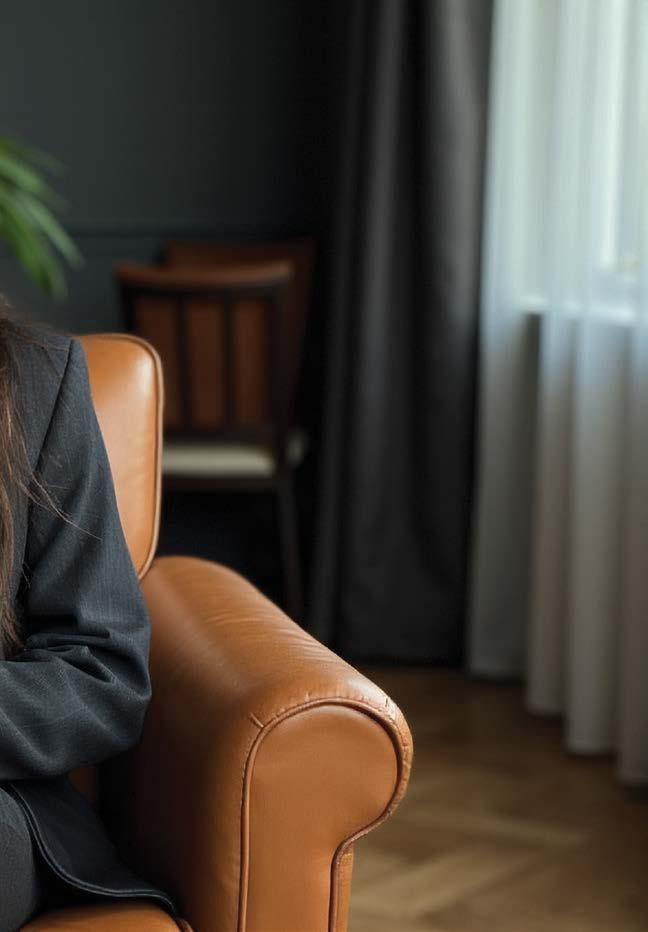
From “At that time, AI wasn’t yet capable of creating the high-end video quality we now see, but I could clearly see the potential. So, I spent that year learning, testing, and building my foundation,” she says.
In 2023, she launched a German-language digital course focused on helping entrepreneurs use AI to automate and grow their businesses. Plus, she started offering B2B services to companies looking to scale content creation through avatars, automation, and branded storytelling.
HERE’S THE TRUTH: THE AI DOESN’T CREATE THE VIDEO. THE ARTIST DOES.”
In 2025 - when surveys report a significant increase in AI adoption by businesses, with 78% of organizations using AI in at least one business function - Klass has a fully developed offering to help companies, governments, and innovators to scale content, automate production, and stand out with high-end, futuristic media — without the cost or effort of traditional methods.
“For example, a company in the UAE can scale their content into Chinese, Spanish, or Arabic markets using the same avatar — with localized speech and native-level delivery,” Klass explains. “This enables international growth without the traditional barriers of location, filming logistics, or language limitations.”
She also works as an international AI educator for a US-based company that operates in over 160 countries.
“I’m helping develop the Germanand English-speaking markets by building a global AI community,” she
THE AI IS THE TOOL — BUT THE DIRECTION, THE STYLE, THE EMOTIONAL TONE, AND THE VISUAL ACCURACY COME
says. ‘The focus is on teaching business professionals how to integrate AI into their workflows to grow faster, smarter, and with more creative freedom.”
Today, Klass has made it her mission to help entrepreneurs and brands scale their presence, simplify production, and make their mark in the digital space — all through the power of AI.
However, it was only when she began working with AI that she fully realized its potential. “At first, I noticed how fast avatars could be created. Then I saw how AI could generate entire video scenes without a camera. And finally, I realized: this technology isn’t just a shortcut — it’s a
↓ After building a strong foundation in Germany, Klass moved to the UAE with an idea to launch a business in the beauty and education space. Yet, she faced severe construction delays in launching her beauty salon.
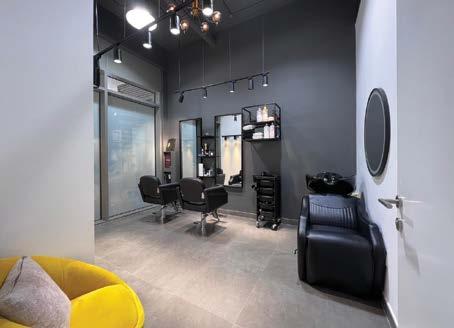
transformation,” she says. “We’re witnessing the beginning of AI-driven cinema. I believe we’ll see the first full-length AI-generated film by 2026. The tools aren’t fully there yet, but they’re moving fast — and the efficiency is undeniable.”
Her focus on AI has also led her to realize that its impact will be wide-raging. “The more I studied AI, the more I understood that it would redefine how we live and work,”
Klass says. “In the near future, we won’t be typing on laptops or tapping on phones — we’ll be communicating with AI agents through voice, chips, or wearables. Everything will be based on prompt-driven execution. Our minds are faster than our fingers, and AI gives us a way to finally work at the speed of thought.”
The fear that artificial intelligence will steal our jobs has echoed across industries for years. But Klass quickly dispels those concerns. “Here’s the truth: the AI doesn’t
AI in Business — Angela Klass’s Insights
} Start small — but start now.
“If you’re a creative professional looking to integrate AI, the best first step is to explore tools that complement your existing workflow. Whether you’re in design, content, photography, video, or branding — there’s an AI tool that can help you save time or amplify your output.”
} Don’t aim for perfection but experimentation.
“Focus on mastering one tool at a time — and most importantly, understand prompt engineering. That’s the real superpower. AI is only as good as the instructions you give it. You don’t need to become a programmer — you need to become a creative director who knows how to speak AI’s language.”
} AI is not a magic button.
“The biggest mistake I see? People underestimate how much skill and strategy it
still takes. It doesn’t replace creativity — it enhances it. But only if you know what you’re doing. The worst assumption is, ‘AI will do it for me.’ No, you do it, and AI helps you do it better and faster.”
} Don’t wait for perfect timing or perfect tools.
“In this space, perfection is your enemy. Speed and adaptability win. If you hesitate too long, you’ll miss the wave. The tools will get better, but so will your competition.
Also: don’t try to be everything at once. AI is a massive field — from text and image to video, code, music, automation, and agents. Pick your lane, get strong in it, and build from there. The world is moving fast. The earlier you adapt, the bigger the advantage you’ll have. And the great news is: AI rewards creativity, not just technical skill. So if you’re creative, you’re already ahead.”

create the video. The artist does,” she says. “The AI is the tool — but the direction, the style, the emotional tone, and the visual accuracy come from the human behind it. That’s why expertise matters.” She goes on to explain that a great AI video is not a one-click solution but a curated process that combines creative direction with technical skill. “The person behind the video must understand camera movement, cinematic lighting, scene composition, color theory, and storytelling — and be able to translate all of that into AI-generated prompts and assets,” Klass adds. One interesting fact about Klass is that long before AI became a powerful tool, she was building businesses the old-fashioned way—through grit, instinct, and years of hands-on experience.
The first time she took the plunge into entrepreneurship was in 2010 in Germany where she launched a B2B business in the high-end beauty industry, specializing in permanent make-up. “In 2016, I was featured on one of Germany’s biggest national television shows, which made me widely known in Germany, Austria, and Switzerland,” Klass recalls. “That TV appearance elevated my brand massively and brought in high-profile clients, including politicians and public figures who traveled specifically to work with me or attend my academy.”
By 2018, she expanded the business by opening her own permanent makeup academy, an online store for Germanmanufactured tattoo machines and pigments, and a mobile education app — one of the first in the niche — to offer flexible digital learning. “The German market at that time was ideal for what I was doing,” Klass recalls. “I entered early, before the big wave of demand for permanent make-up services, and positioned myself as a specialist with a strong media presence. I was highly visible on social media, in the press, and on national TV, which helped me build a trusted brand in a market with very little competition at the time.”
After building a strong foundation in Germany, Klass moved to the UAE with an idea to launch a business in the beauty and education space. Yet, she faced severe construction delays in launching her beauty salon. “The quality of work was far below expectations. I faced construction errors that would be unthinkable in Germany,” Klass says. “Coming from Germany, where craftsmanship is taken seriously and precision is expected, this experience pushed me to my limit. I learned that what works in one country cannot be assumed in another — even basic communication and quality standards require cultural translation.”
But in the quiet aftermath, a silver lining emerged: the pause gave Klass time to reassess, redirect, and ultimately discover a new path. “While construction dragged on, I used the downtime to start learning about AI. I began experimenting with avatars and automation tools. I signed up for international training programs and slowly began laying the foundation for a new business model,” she says. “In March 2023, I finally opened the salon — five and a half months late. And in October 2023, after careful reflection, I sold the business and fully transitioned into the digital space. That is how I got to now work in AI-powered content creation and video production, fully online and with a global client base.”
With one foot in Europe’s structured, process-driven economy and the other in the UAE’s fast-paced, opportunityrich environment, Klass’ adaptability can serve as a roadmap for anyone
“
IN THE NEAR FUTURE, WE WON’T BE TYPING ON LAPTOPS OR TAPPING ON PHONES — WE’LL BE COMMUNICATING WITH AI AGENTS THROUGH VOICE, CHIPS, OR WEARABLES.”
→
ANGELA KLASS used to run a permanent makeup academy, an online store for Germanmanufactured tattoo machines and pigments, and a mobile education app in Germany.
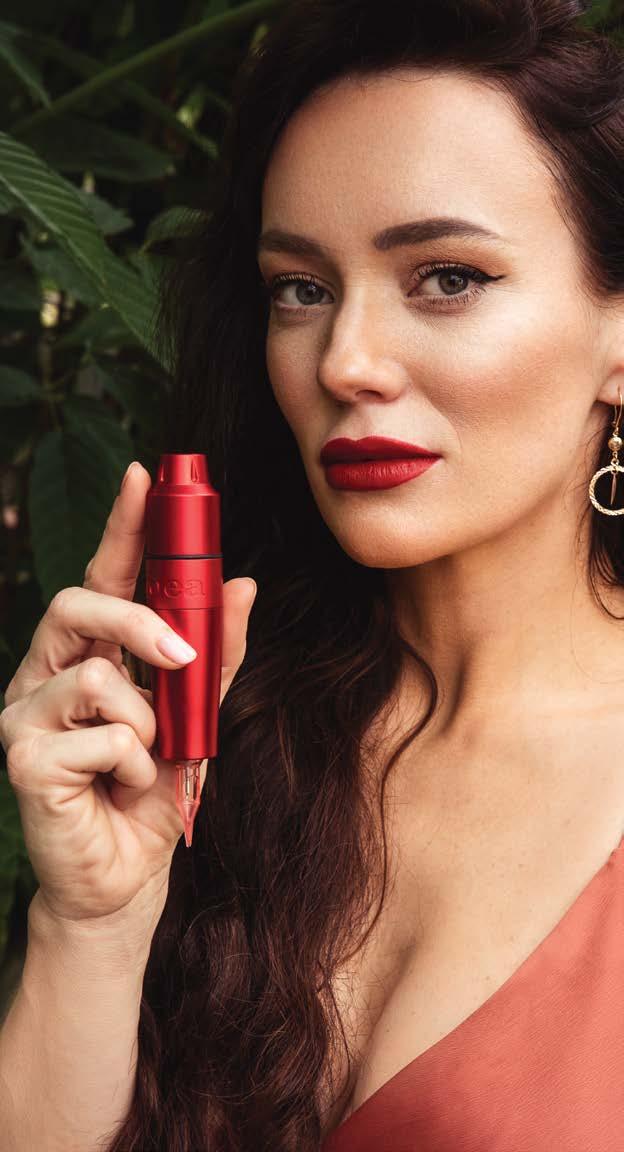

IN THE UAE, YOU NEED A HIGHER UPFRONT INVESTMENT, BUT ONGOING COSTS ARE LOWER AND THE SYSTEM IS MORE FLEXIBLE FOR ENTREPRENEURS.”
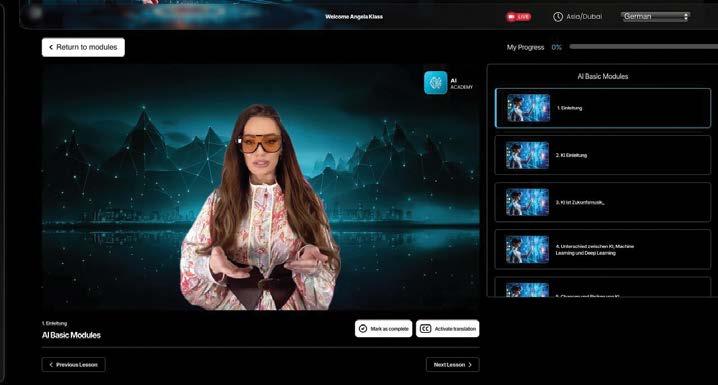
→ Klass also works as an international AI educator for a US-based company that operates in over 160 countries.
scaling across borders. “While the setup is inexpensive, maintaining a business in Germany is far more demanding due to high taxes, complex reporting, and constant government obligations,” she says. “The UAE is the opposite: you need a higher upfront investment, but ongoing costs are lower and the system is more flexible for entrepreneurs.”
In the end, Klass’ deep understanding of AI is not a departure from her entrepreneurial roots—it’s an evolution of them. Grounded in years of building and managing businesses across continents, her approach to AI is pragmatic, strategic, and refreshingly human. Her advice to fellow business leaders? “What we’re seeing now, in 2025, is just the beginning. I believe that by 2027, AI will be fully embedded in most businesses — and no one will be asking “if” they need it. The question will be, How fast can we implement it?’ That’s why I do what I do: I help entrepreneurs move now, before the wave becomes overwhelming. Because in business, speed wins — and AI is the ultimate accelerator,” Klass concludes.
} "If you’re working in AI and thinking about where to start — the UAE is the best place to begin right now. The country has made a clear and bold decision to lead in this space, and it’s not just talk — it’s visible everywhere. From smart city infrastructure to government AI initiatives and AI- integrated education, the Emirates are moving faster than most other countries in the world.
} "One of the greatest advantages of launching in the UAE is the entrepreneurial mindset. Founders here are open, future- focused, and willing to embrace innovation. That makes it much easier to offer cutting-edge services like AI-powered branding, automation, or content creation — because clients here are already mentally prepared for the next step.
} "At the same time, building an AI business is not tied to a
physical location. You can operate globally — work with business owners in the U.S., Europe, Asia — without being bound to one timezone or country. That’s the beauty of this industry: you can scale internationally while being based anywhere."
} "In comparison, many European countries are more cautious. They will adopt AI, but more slowly. U.S. entrepreneurs are risk-takers — and excellent clients for AI services — but the UAE gives you the foundation and credibility to scale toward both East and West. It’s a launchpad for global growth.
} "In short: if you’re serious about AI, the UAE offers not just infrastructure, but momentum. You’re starting in a place where people already understand the value of AI — and that makes your work easier, faster, and more impactful."
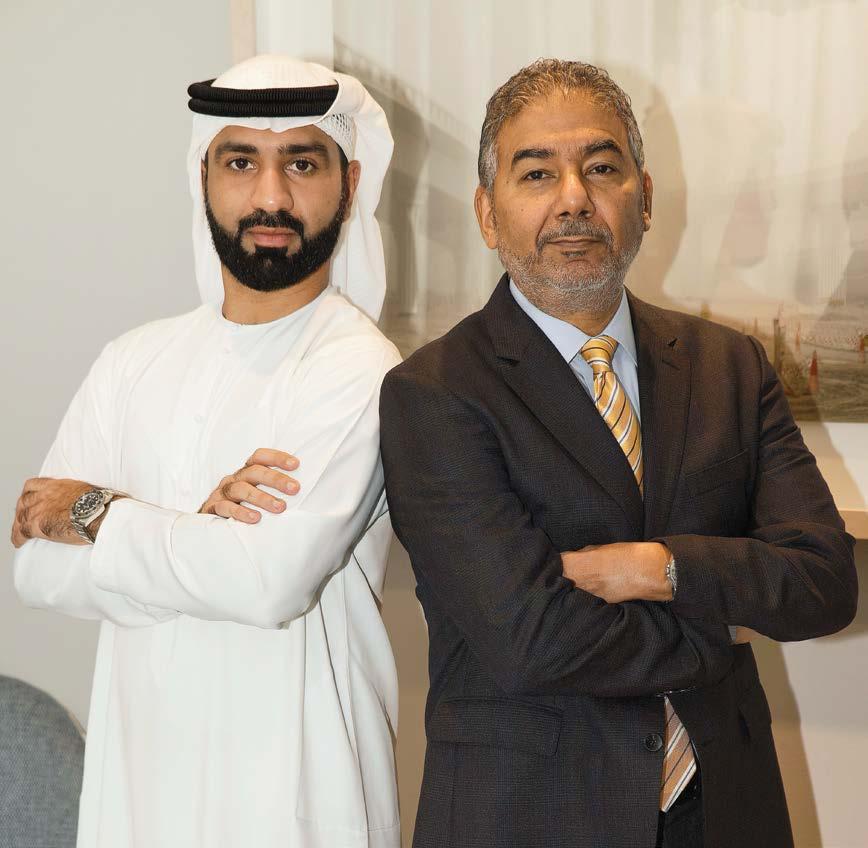
← Faisal Sajwani and Ahmed Hassan are the Managing Partner and Senior Partner, respectively, at UAE-based sustainability consulting firm MS Consulting
As calls for standardized corporate sustainability policies grow louder, UAE-based MS Consulting is making quiet waves by helping organizations—both big and small—untangle the complexities of building ESG frameworks that go beyond mere optics. by AALIA MEHREEN AHMED
Between November and December 2023, as the world watched the UAE’s historic hosting of the COP28, it inspired within the nation’s business community a renewed sense of belief in the possibility of a sustainable future. The launch of multiple government initiatives —particularly the Net Zero by 2050 strategy— buoyed that vision, with 2023’s title of “The Year of Sustainability” being extended to 2024 as well. But while much of that initial vigor remains, a lot of companies –across the growth stages– have found that their attempts to create effective environment, sustainability and
governance (ESG) policies haven’t always led to optimal results. Few individuals in the UAE are able to view the challenges that cause this stagnation as closely as Faisal Sajwani and Ahmed Hassan, who are, respectively, the Managing Partner and Senior Partner at UAEbased sustainability consulting firm MS Consulting. “I’d say the biggest challenge now is execution,” Sajwani says. “A lot of companies made bold announcements at COP28, which is a great start—but without the right governance structures, data systems, and accountability mechanisms, those goals risk remaining aspirational. Our role is to bridge that
gap. We work with clients to move from high-level vision to actionable strategy—so that sustainability becomes a measurable part of how the business operates, not just how it communicates.”
Mirroring Sajwani’s sentiments, Hassan adds that a glaring lack of consistency in the already implemented ESG policies is another problem area. “After COP28, we saw a surge in interest and public commitments, but many organizations are still struggling with the internal capacity and technical know-how to move from ambition to implementation,” Hassan continues. “ESG isn’t something you
A LOT OF COMPANIES MADE BOLD ANNOUNCEMENTS AT COP28, WHICH IS A GREAT START—BUT WITHOUT THE RIGHT GOVERNANCE STRUCTURES, DATA SYSTEMS, AND ACCOUNTABILITY MECHANISMS, THOSE GOALS RISK REMAINING ASPIRATIONAL. OUR ROLE IS TO BRIDGE THAT GAP.”
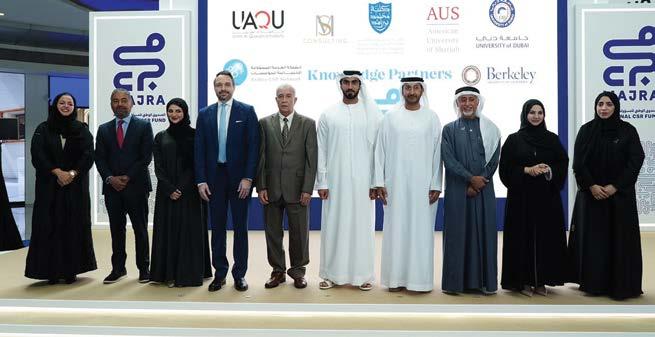
activate once—it requires sustained investment, cross-functional ownership, and continuous measurement. That’s the gap we’re focused on helping clients close.”
Indeed, this is where MS Consulting comes in. In the absence of standardized ESG policies, Sajwani and Hassan have taken it upon themselves to deliver tailored sustainability frameworks to businesses in the UAE. “Different regions, industries, and regulators follow different frameworks— whether it’s GRI, SASB, or TCFD—so companies are often overwhelmed by what we call the “alphabet soup” of ESG,” Sajwani points out. “This lack of standardization creates confusion, slows down implementation, and can lead to inconsistent reporting.”
“At MS Consulting, we approach this by simplifying the path for our clients,” Hassan adds. “We help them cut through the noise and focus on what’s material to their business—whether that’s climate risk, supply chain transparency, or social impact. We align the right frameworks to their strategic goals, so ESG isn’t just about compliance—it becomes a clear,
WHETHER IT’S GRI, SASB, OR TCFD—SO COMPANIES ARE OFTEN OVERWHELMED BY WHAT WE CALL THE “ALPHABET SOUP” OF ESG. THIS LACK OF STANDARDIZATION CREATES CONFUSION, SLOWS DOWN IMPLEMENTATION, AND CAN LEAD TO INCONSISTENT REPORTING.”
value-generating roadmap that supports long-term performance and stakeholder trust.”
As a starting point for any given client, MS Consulting conducts what it calls a materiality assessment– a diagnostic to identify which ESG issues matter most to a business and to its stakeholders. “Not every company needs to address everything at once,” Sajwani warns. “In fact, trying to do so often leads to diluted impact. A focused, materiality-driven
↓ The MS Consulting team is committed to helping organizations navigate the complex landscape of sustainability by providing tailored solutions that align with their business values and goals.
approach helps align your ESG efforts with what actually drives value, risk, and opportunity for your business. It’s about being strategic, not reactive. From there, we co-create a tailored roadmap that’s practical, measurable, and embedded into core operations. It’s not just about long-term commitments; it’s about making sustainability part of daily business decisions, from decarbonization to ESG reporting.”
But coming up with a customized sustainability plan is only winning half the battle– as Hassan repeatedly points out, such a framework is only effective when the gravitas of its necessity trickles into every internal branch of an
organisation. “A key part of our process is employee engagement,” Hassan continues. “You can’t build a sustainable culture unless people understand the “why” behind it. We lead workshops, training sessions, and campaigns to build awareness and capability across the organization. As we often say to clients: ‘Sustainability works best when it is second nature—not a separate effort.’ When teams understand the ‘why’ and are empowered to act, the strategy becomes part of the culture. Without internal buy-in, even the best frameworks tend to stay on paper.”
Using this approach, MS Consulting promises to

incorporate structured stakeholder engagements, peer benchmarking, as well as relevant industry analyses in building the right ESGs for its clients.
In the process, Sajwani and Hassan have found that some industries are more challenging to navigate than others. “Sectors like real estate and logistics pose unique challenges, particularly when it comes to measuring indirect emissions and managing complex supply chains,” reveals Sajwani. “These industries often have significant Scope 3 emissions, which aren’t directly under a company’s control but still have a major impact. That’s why we take a sector-specific approach to ESG. Rather than applying generic frameworks, we tailor key performance indicators by mapping material impact areas to the risks and opportunities specific to each industry. The goal is to create metrics that are both relevant and actionable.”
MS Consulting’s ability to tailor their services “makes all the difference,” Sajwani notes. “Take logistics in the UAE, for example. We worked with a client to track greenhouse gas emissions across fleet operations, but also
→ Ahmed Hassan is a global executive, entrepreneur, and advisor who spent more than 30 years at Colgate-Palmolive leading teams and initiatives across multiple regions and disciplines. As a Senior Partner at MS Consulting, he plays a pivotal role in shaping the firm's strategic direction and delivering high-impact advisory services for a global client base.
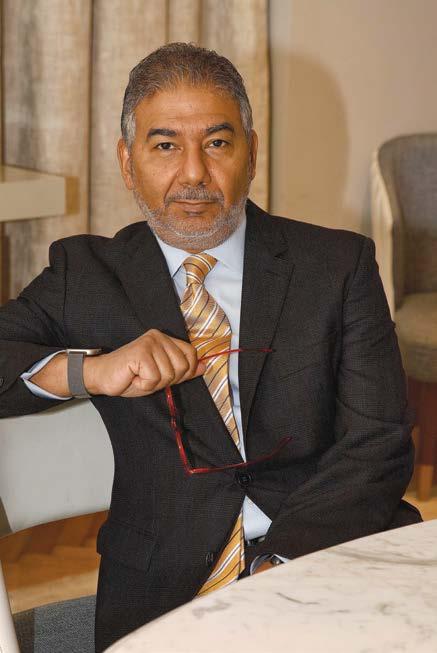
integrated labor welfare indicators, reflecting the region’s social priorities. That dual lens—environmental and social—gave a more accurate picture of performance and areas for improvement. ESG isn’t a one-size-fits-all exercise. When you design metrics that speak directly to an industry’s context, you get insights that actually drive progress.”
But with fragmented policies come fractured perceptions of sustainability– which can prove to be a hurdle in and of itself. “There’s this idea that ESG is only for the big players— multinationals and large corporations with the budget and bandwidth to implement it,” Hassan says. “But that’s outdated thinking. ESG principles are scalable, and in many ways, small and medium enterprises (SMEs) are better positioned to adopt them quickly and authentically. When sustainability is embedded into a business’s DNA early on, it drives resilience, builds trust, and aligns the company with where the market is headed. In a fast-moving environment like the UAE, that kind of foresight gives you a real competitive edge.”
Also required for a more sustainably equitable business ecosystem is to do away with the notion that ESGs are a
“
A KEY PART OF OUR PROCESS IS EMPLOYEE ENGAGEMENT. YOU CAN’T BUILD A SUSTAINABLE CULTURE UNLESS PEOPLE UNDERSTAND THE “WHY” BEHIND IT. WE LEAD WORKSHOPS, TRAINING SESSIONS, AND CAMPAIGNS TO BUILD AWARENESS AND CAPABILITY ACROSS THE ORGANIZATION. AS WE OFTEN SAY TO CLIENTS: ‘SUSTAINABILITY WORKS BEST WHEN IT IS SECOND NATURE—NOT A SEPARATE EFFORT.’”
marketing strategy, Sajwani notes. “Some companies still see ESG as a box-ticking exercise—something they report on once a year as a PR move,” he says. “But that mindset misses the point. ESG isn’t just about optics; it should be a strategic lens through which you evaluate business decisions every single day. When embedded properly, it influences everything from operations and procurement to innovation and risk management. The companies that treat ESG as a business driver—not a branding exercise—are the ones attracting talent, earning investor confidence, and staying ahead of the curve.”
Of course, all these statements don’t come without compelling hard facts to back them. Ernst & Young’s 2024 Global Institutional Investor Survey showed that 88% of investors have increased their use of ESG information in decisionmaking. Meanwhile, KPMG’s 2024 Global ESG Due Diligence Study revealed that 55% of investors are willing to pay a premium of 1-10% for assets with high ESG maturity. When it comes to hiring talent and employee turnover rates, a 2024 study published in US-based management research platform Academy of Management showed that higher levels of ESG performance and changes in ESG perfor-

→ Faisal Sajwani is an Emirati entrepreneur and strategic advisor. As the Managing Partner at MS Consulting, Sajwani has grown the company into a trusted advisor for government entities, corporations, and institutions looking to embed sustainability into their core strategies and business models while achieving long-term competitiveness in a rapidly evolving global economy.
clients unlock cost savings through efficiency improvements and even open up new revenue streams by aligning with sustainability trends. When ESG is embedded into core operations—not just marketing—it becomes a powerful lever for growth and resilience.”
The Ernst & Young study that was mentioned earlier offered yet another relevant statistic: while 93% of global investors are confident that companies will meet their sustainability targets, a significant 85% of them also believe that greenwashing is a growing problem. The UAE’s businesses too have been privy to this phenomenon. “Avoiding greenwashing
starts with one principle: transparency,” Sajwani says. “At MS Consulting, we emphasize the importance of setting clear, measurable goals and backing sustainability claims with credible, third-party-verified data. It’s not enough to say you’re sustainable—you need to prove it. That means aligning disclosures with global frameworks, being honest about where you are on your ESG journey, and resisting the urge to overstate progress. If a claim can’t be substantiated, it shouldn’t be made. We help clients build trust by focusing on substance over spin.”
All of these tangential conversations, however, lead back to one point: the
SOME COMPANIES STILL SEE ESG AS A BOX-TICKING EXERCISE—SOMETHING THEY REPORT ON ONCE A YEAR AS A PR MOVE. BUT THAT MINDSET MISSES THE POINT. ESG ISN’T JUST ABOUT OPTICS; IT SHOULD BE A STRATEGIC LENS THROUGH WHICH YOU EVALUATE BUSINESS DECISIONS EVERY SINGLE DAY.”
mance over time have a positive correlation with increased employee satisfaction in S&P 500 companies. On the flip side, the PwC Global Workforce Sustainability Study 2024 revealed that while choosing an employer, 68.6% of employees prioritize the firm’s environmental policies.
All of this inevitably validates perhaps what is the most significant statistic in this prose- that by 2030, ESG assets are
projected to surpass a whopping US$40 trillion.
“The link between ESG and financial performance is not just theoretical anymore,” Hassan says.
“While there may not be a one-size-fits-all formula, the data and real-world outcomes are increasingly clear. ESG reduces operational and reputational risk, improves employee retention and engagement, and makes a company far more attractive to investors, especially those focused on long-term value. I’ve seen
↓ In 2024, MS Consulting received a certificate of recognition from the UAE’s National CSR Fund “Majra”, the federal arm setting up the framework and governance for Sustainable Impact, Sustainability and Corporate Social Responsibility (CSR) in the nation
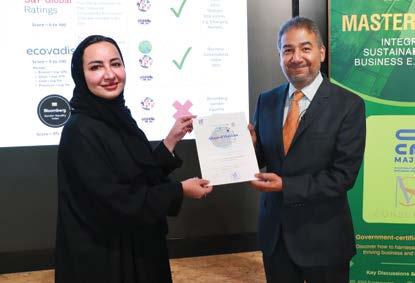
need to create more standardized ESG frameworks. And while MS Consulting is quietly doing its part in clearing the misconceptions and incoherence within this space, Sajwani and Hassan don’t shy away from noting that a large-scale shift is required to create real impact. “One of the most impactful steps would be the introduction of clearer, standardized ESG disclosure requirements at the national level—not just for publicly listed companies, but across all sectors,” Sajwani shares. “Right now, reporting practices vary widely, which makes it difficult to benchmark progress or hold companies accountable. A unified framework would not only create consistency but also send a strong signal that ESG performance is a core part of doing business in the UAE. It’s about creating a level playing field and setting a baseline that everyone can build from.” But regulation alone isn’t enough, Hassan observes. “Incentives too play a crucial role in accelerating adoption,” he says. “Whether it’s green procurement preferences, preferential access to government tenders, tax incentives, or ESG-linked financing, we need mechanisms that reward companies for prioritizing sustainability. When the regulatory environment aligns with economic opportunity, we see much faster progress—and more innovation— from the private sector.”
On their part, Hassan and Sajwani already have plenty in the pipeline to achieve their shared vision. “We’re continuing to grow our advisory presence across the GCC and investing heavily in digital sustainability tools,” Hassan says. “At the same time, we’re looking beyond the traditional ESG playbook. For example, we see food security as a critical sustainability frontier in this region. The UAE currently imports nearly 90% of its food, so strengthening local, sustainable production isn’t just forward-thinking— it’s essential. That’s why we’re exploring innovations like vertical farming, which supports year-round cultivation with drastically reduced water usage and aligns with the UAE’s Food Security
Strategy 2051. It’s a perfect example of how sustainability, technology, and national priorities intersect.”
MS Consulting’s foray into the world of real estate sustainability is also set to continue, notes Sajwani. “One of our most exciting initiatives is a series of next-generation luxury villas,” Sajwani shares. “These homes aren’t just energy-efficient—they’re redefining what sustainable luxury means. Through smart design, renewable energy, and integrated clean technologies, we’re demonstrating that sustainability can enhance quality of life rather than restrict it. But we’re not stopping at individual homes. Our long-term vision is to scale this model into fully sustainable communities, and eventually into cities where energy, food, water, and waste are managed holistically.” As the duo prepare for these multiple plans, they also agree that to optimally achieve sustainability ambitions as a nation, strategic collaborations are the way forward. “The scale and complexity of today’s sustainability challenges require coordinated efforts across the entire ecosystem,” Sajwani says. “That means deeper partnerships between government, private sector, academia, and investors. Each brings unique expertise and influence to the table, and only by aligning these strengths can we drive systemic change. At MS, we see ourselves as both a catalyst and connector in this space.”
“Exactly—and we’re very intentional about that role!” Hassan adds. “At MS Consulting, we’re not just advising from the sidelines. We’re actively building bridges—whether that’s through facilitating public-private dialogues, supporting cross-sector coalitions, or co-developing thought leadership with industry stakeholders. Our goal is to help shape a shared vision for sustainability in the UAE, one that’s actionable, inclusive, and long-term. We believe real progress happens when the right people are in the room—and we’re committed to being the ones who help bring them together.”
Who struggles more to establish a strong ESG framework—startups and small businesses, or large corporations? MS Consulting's Faisal Sajwani and Ahmed Hassan answer!
} Ahmed Hassan:
“Both face challenges, but they’re very different in nature. Startups and small businesses often struggle with limited resources—they may not have dedicated sustainability teams or the capacity to invest heavily in reporting systems. But what they do have is agility. They can adapt quickly, make sustainability part of their DNA from the outset, and build with purpose. Large corporations, on the other hand, usually have the resources and infrastructure, but they often face internal complexity and bureaucracy. Aligning multiple departments, shifting legacy mindsets, and rolling out ESG across global operations can be a very challenging process.”
} Faisal Sajwani:
“That’s why our approach is always tailored. For startups, we focus on embedding ESG into their growth journey—helping them see it as a value creator, not just a cost. We support them in setting the right foundations early, so they scale responsibly and with resilience. For larger companies, it’s more about systems, metrics, and transformation. We work across functions to align ESG strategy with business objectives, integrate digital tools, and drive cultural change. Ultimately, effective ESG isn’t one-size-fitsall. It has to be context-specific, practical, and tied to long-term value.”

2030
MEET THE TEAM ARCHITECTING THE FUTURE OF CAPITAL
by ENTREPRENEUR MIDDLE EAST

It began with an audacious question: What if ownership could be reimagined? Not just digitized, but fundamentally transformed - decentralized, fractionalized and made programmable. That question sits at the heart of droppRWA, a pioneering real-world asset tokenization ecosystem that’s not just riding the blockchain wave - it’s helping shape it.
Behind the momentum of droppRWA stands a team of visionary founders with roots as diverse as Wall Street trading desks, government Web3 sandboxes, global fintech ecosystems and early Bitcoinbacked trades. Together, Christopher J. Kelly, Faisal Al Monai, Koh Onozawa Martínez, and Gurps Singh Rai are writing the playbook for how real-world assets (RWAs) are turning from illiquid, inaccessible holdings into instantly tradeable, programmable units of economic potential.
Real-World Assets (RWAs) refer to tangible or intangible assets that exist outside the blockchain, such as real estate, commodities, infrastructure, fine art or even intellectual property. Tokenizing RWAs involves creating a digital representation of these assets on a blockchain, enabling them to be traded, owned, and managed in a decentralized digital environment.
The process starts with the identification and valuation of an asset. Once verified through legal, financial, and technical due diligence, a digital token is issued that represents ownership or economic rights to a portion (or the entirety) of the asset. These tokens are governed by smart contracts, which automate functions like income distribution, transfer restrictions, compliance checks, and voting rights.
Ecosystems like droppRWA integrate additional infrastructure like oracle networks, custody layers and insurance coverage to ensure institutional-grade security and real-world data integration. For example, a tokenized residential tower in Riyadh may have each apartment unit represented as fractional shares, where token holders receive their share of rental income in real-time, automatically executed by smart contracts and validated by data from oracles.
This approach not only increases liquidity in markets traditionally limited to large capital holders, but also expands financial inclusion. As Christopher J. Kelly put it: “Fractionalization, 24/7 settlement and programmable compliance open up Real World Asset investment to anyone with a smartphone - not just institutions.”
Moreover, the traceability and immutability of blockchain records enhance transparency and reduce fraud. The architecture allows regulators to monitor transactions in real-time, audit smart contract executions and enforce compliance directly through code.
This technological shift is particularly significant in the Middle East, where massive infrastructure and real estate projects under Vision 2030 can now tap into a new generation of digitally empowered investors. From highnet-worth individuals to everyday citizens, RWA tokenization represents a powerful step toward democratized asset ownership and more efficient capital formation.
The benefits are significant: increased liquidity for traditionally illiquid assets, enhanced transparency through immutable records, reduced transaction costs and broader investor participation - making it possible for someone to invest in high-value Real World Assets with just a smartphone and a few dollars
In a blockchain landscape often dominated by speculative cryptocurrencies and meme-driven tokens, Real World
Assets stand apart. They offer something tangible, verifiable and inherently valuable.
Christopher J. Kelly, whose career has transitioned from Goldman Sachs to co-founding droppRWA, sees RWA tokenization as the logical evolution of traditional finance. “Institutional rigor is timeless - whether on a Wall Street trading desk or deep in blockchain architecture,” he says. “We brought those disciplines into droppRWA, ensuring every tokenized deal meets institutional-grade standards.” For institutional investors, this means unlocking liquidity from assets like real estate, infrastructure and energy reserves and moving into a realm of fractional ownership, 24/7 settlement and programmable compliance.
Kelly adds, “The lightbulb always goes off when they realize they can unlock liquidity from traditionally illiquid assets. But the learning curve still includes custody, smart contracts and regulatory frameworks. Where education is needed is around custody, smart contracts and the evolving regulatory perimeter. Many still conflate tokenization with cryptocurrency volatility - but RWA tokenization is about asset integrity, not speculative hype”
Saudi Arabia’s Vision 2030 initiative represents one of the most ambitious national transformation projects in the

modern era. It aims to diversify the Kingdom’s economy beyond oil, develop public service sectors, attract global investment and create a tech-driven society powered by innovation.
Within this transformative blueprint, blockchain and tokenization technologies have found fertile ground to flourish. Vision 2030 emphasizes digital sovereignty, inclusion, and economic empowerment - all of which align with the promise of real-world asset tokenization.
Faisal Al Monai highlights how this alignment is intentional. “Tokenization isn’t just a tech upgrade. It’s a structural shift that aligns with Vision 2030’s mandate to build a diversified, inclusive and high-growth economy,” he explains. “droppRWA is helping lay the infrastructure that allows every citizen to be an investor, every asset to be programmable and every transaction to be transparent.”
“When we connected SADAD in the early 2000s between banks and government billers, we weren't just building a payment gateway, we were fundamentally reimagining how citizens interact with the government services,” Monai recalls. “The skepticism was immense. People would ask, 'Why would I pay my electricity bill online when I can walk to the office?' Today, that same question echoes with tokenization.”
“But here's what I learned from SADAD

“
TOKENIZATION ISN’T JUST A TECH UPGRADE. IT’S A STRUCTURAL SHIFT THAT ALIGNS WITH VISION 2030’S MANDATE TO BUILD A DIVERSIFIED, INCLUSIVE, AND HIGH-GROWTH ECONOMY. DROPPRWA IS HELPING LAY THE INFRASTRUCTURE THAT ALLOWS EVERY CITIZEN TO BE AN INVESTOR, EVERY ASSET TO BE PROGRAMMABLE, AND EVERY TRANSAC- TION TO BE TRANSPARENT.”
experience,” he continues, “transformational technology isn't about convenience, it's about possibility.”
Saudi Arabia’s government isn’t standing on the sidelines. Regulatory bodies such as the Capital Market Authority (CMA) are actively supporting innovation through sandbox programs and pilot initiatives. The RAFAL transaction, Saudi Arabia’s first tokenized real estate deal, is a direct result of these progressive policies. “The same way SADAD redefined bill payments in Saudi Arabia, droppRWA is redefining asset ownership.” adds Monai
“The difference today is speed and scale,” he emphasizes. “With tokenization, we're building on decades of digital trust. The infrastructure exists, the regulatory framework is coming and most importantly, the vision - Vision 2030 - provides the North Star that we didn't have in the early 2000s.”
Tokenization serves the broader Vision 2030 agenda by enabling foreign direct investment, unlocking liquidity in infrastructure projects and democratizing access to the nation’s growing portfolio of mega-projects - whether NEOM, Qiddiya or The Line. With blockchain, economic participation is no longer reserved for institutional investors or high-networth individuals. Instead, it's scalable, borderless and inclusive. One of the most
ambitious national transformation projects in the modern era. It aims to diversify the Kingdom’s economy beyond oil, develop public service sectors, attract global investment and create a tech-driven society powered by innovation.
Within this transformative blueprint, blockchain and tokenization technologies have found fertile ground to flourish. Vision 2030 emphasizes digital sovereignty, inclusion and economic empowerment - all of which align with the promise of real-world asset tokenization.
Faisal Al Monai highlights how this alignment is intentional. “Tokenization isn’t just a tech upgrade. It’s a structural shift that aligns with Vision 2030’s mandate to build a diversified, inclusive and high-growth

economy,” he explains. “droppRWA is helping lay the infrastructure that allows every citizen to be an investor, every asset to be programmable and every transaction to be transparent.”
The moment that cata-
pulted droppRWA into the regional spotlight was the RAFAL real estate transaction, a historic milestone that marked the first-ever tokenized real estate transaction in Saudi Arabia. But for co-founder Faisal Al Monai, it wasn’t just a tech demo. “Every revolution appears sudden, but it’s always the result of meticulous preparation,” he says. “The RAFAL deal
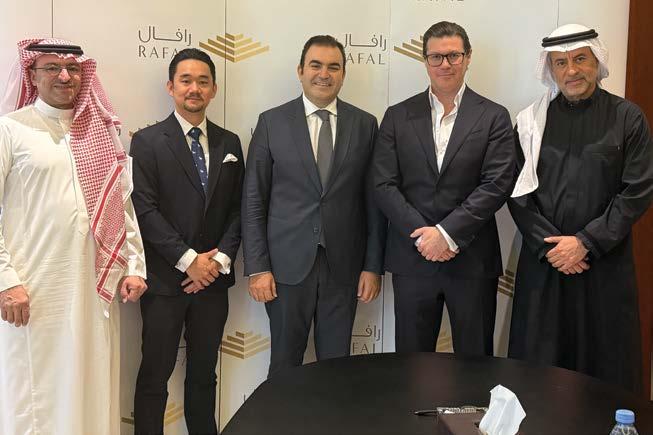
is a ‘first,’ but it’s standing on the shoulders of a decade of digital transformation work across the Kingdom.”
This transaction represents the convergence of regulatory clarity, institutional trust and sovereign-grade technology infrastructure. With ongoing work from government ministries to the CMA, droppRWA established the foundation that enabled the transaction to meet compliance, transparency and scale expectations.
Faisal Monai’s journey Faisal Al Monai’s journey from connecting SADAD, Saudi Arabia’s national electronic bill payment system, to co-founding droppGroup and then droppRWA is a blueprint for how digital infrastructure can reshape a nation’s economy. “When we connected SADAD in the early 2000s, we weren't just building a payment gateway, we were fundamentally reimagining how citizens interact with the government services,” he says.
Skepticism was high. “People would ask, 'Why would I pay my electricity bill online when I can walk to the office?' Today, that same question echoes with tokenization - ‘Why would I own a fraction of a building through a token when I can buy property the traditional way?’”
“But here's what I
WHEN A YOUNG SAUDI CAN OWN A PIECE OF PREMIUM REAL ESTATE FOR THE PRICE OF A COFFEE. WE'RE NOT JUST INNOVATING TECHNOLOGY, WE'RE RESHAPING THE VERY FABRIC OF ECONOMIC PARTICIPATION.”
learned from SADAD,” Al Monai reflects. “Transformational technology isn't about convenience, it's about possibility.” SADAD democratized access to government services. Tokenization, he argues, is about democratizing wealth creation.
“When a young Saudi can own a piece of premium real estate for the price of a coffee,” Al Monai continues, “we're not just innovating technology, we're reshaping the very fabric of economic participation.”
The contrast lies in speed and scale. “SADAD took years to gain trust because we were building the first digital bridge that enabled online government services. With tokenization, we're building on decades of digital trust.”
Having led projects at Microsoft, HP and Oracle, Al Monai has seen first-hand the evolution of public sector technology.
“In the past, we were solving operational problems - faster processing, better record-keeping. Today, under Vision 2030, it's about creating new economic sectors, enabling citizen empowerment and positioning the Kingdom as a global technology leader.”
He emphasizes how the Kingdom’s approach to innovation has changed: “Back then, decision-makers wanted safe, proven solutions. Today, they are first movers. They’re piloting blockchain, AI and tokenization in a
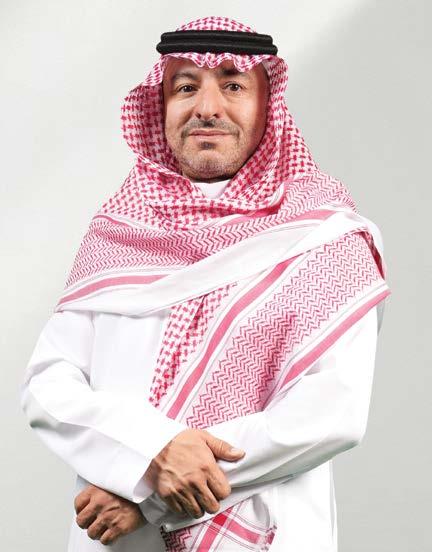
considered and process driven manner because they understand that standing still is the biggest risk.”
One of the most telling signs of this shift is HUMAIN, a $77 billion AI initiative announced under Vision 2030. “That level of investment signals a new kind of ambition - one where Saudi Arabia leads, not follows,” he says. “Tokenization is part of this broader transformation.”
Critically, Al Monai sees blockchain not as a disruption but as an evolution of sovereignty. “Just as SADAD gave Saudi Arabia control over its payment rails, tokenization gives us control over our asset infrastructure. We're not adopting Western models - we're building indigenous capabilities that serve our own context.”
“There’s often prudence in our institutions, which I respect,” he adds. “But prudence without vision is paralysis. The institutions that led on digital payments became regional powerhouses. The same will happen with blockchain.”
With droppRWA’s work on the RAFAL tokenized real estate deal - the first of its kind in the Kingdom - Al Monai and his team have proven tokenization isn’t speculative hype, but a foundation for the new economy. “It’s not an experiment. It’s a business transformation tool aligned with Vision 2030’s mission of economic diversification.”
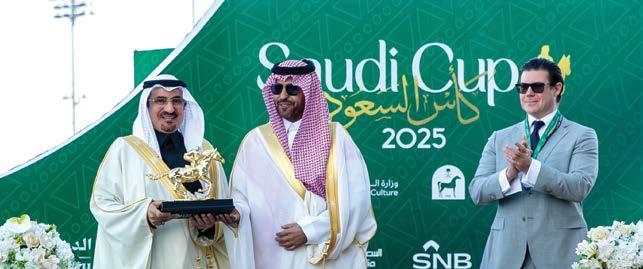
He concludes, “We’re not just implementing blockchain - we’re creating public goods. We’re building the digital infrastructure of the future Saudi and GCC economy. This isn’t just about innovation. It’s about sovereignty, inclusion and opportunity for all.”
Koh Onozawa Martínez, CEO and Co-Founder of droppRWA, brings an unconventional background to the world of blockchain and real-world asset tokenization. With a career that spans from crafting bamboo speakers to practicing marine archaeology and building one of Spain’s largest digital asset platforms, Bit2Me, Onozawa’s interdisciplinary path fuels his strategic vision.
“My weird mix of experiences shapes everything I build,” he says. “Crafting bamboo speakers taught me to obsess over user-friendly design -

blockchain products need that same intuitive feel to go mainstream. Marine archaeology trained me to solve puzzles with incomplete data, which is basically what I do when stitching together
blockchain protocol with legal frameworks or ensuring smart contract reliability.”
His experience scaling Bit2Me across Spain, Brazil and the UAE helped crystalize a clear under-
“
WE’RE NOT JUST IMPLEMENTING BLOCKCHAIN— WE’RE CREATING PUBLIC GOODS. WE’RE BUILDING THE DIGITAL INFRASTRUCTURE OF THE FUTURE SAUDI AND GCC ECONOMY. THIS ISN’T JUST ABOUT INNOVATION. IT’S ABOUT SOVEREIGNTY, INCLUSION, AND OPPORTUNITY FOR ALL.”
standing of how regional culture and regulation shape blockchain adoption. “In Spain, crypto adoption is high but conservative - it's about AML compliance and stable offerings. In Brazil,
it's a hedge against inflation. In the UAE, it's a full-scale institutional play,” Onozawa explains. “Each market demands a tailored approach.”
Working from Abu Dhabi, he describes the emirate as “a unique trifecta of support: a progressive regulatory framework through ADGM, active capital initiatives from government entities, and a growing talent pool via programs like Hub71.”
He sees the Middle East - especially the UAE and Saudi Arabia - as offering unparalleled opportunity. “We can pilot sovereigngrade blockchain systems here that wouldn’t get regulatory approval in slower jurisdictions. That gives us a first-mover advantage in shaping global tokenization standards.”
Onozawa also acknowledges the underestimated complexity of tokenization. “People hype tokenization but don’t realize that the simplest things - regulatory clarity, data integrity, liquidityare the hardest to execute. We’ve built an ecosystem that prioritizes these fundamentals.”
A strong advocate of lean, high-performing teams, Onozawa emphasizes that AI and blockchain must work together. “We use AI as a force multiplier - to focus our human capital on what AI can’t do yet: creativity and empathy. That’s how we scale without losing our edge.”
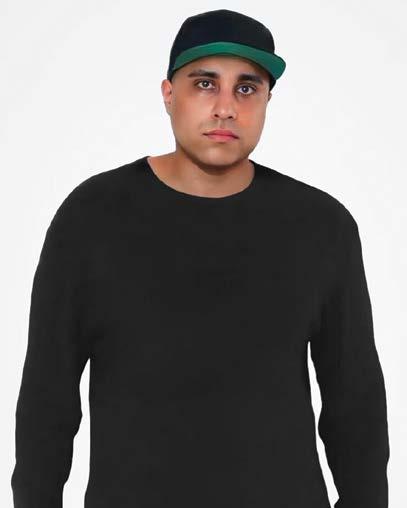
His long-term vision? “To make tokenized assets as usable and trusted as any traditional investment. Maybe one day we’ll even tokenize underwater relics to preserve cultural heritage on-chain.”
Before tokenizing real world assets, Gurps Singh Rai was already redefining value. As a one of the pioneering team members of the digital currency VEN (2007) and in early Bitcoin commodity trades, he witnessed firsthand the leap from theory to trillion-dollar execution. Few voices in the blockchain space combine
experience with vision like Gurps Singh Rai, who brings a legacy of pioneering stable currencies and executing the first-ever Bitcoinbacked commodity trade. His conviction is rooted in practice: “A decade ago, we asked institutions to take a leap of faith. Today, we walk in with proofreal deployments, real economic value, real outcomes.”
“We moved from evangelism to evidence,” he reflects. “Today, institutions don’t ask ‘Will this work?’ They ask ‘How do we not get left behind?’”
With sovereign-grade deployments across entities like Aramco and
the Saudi government, Rai’s droppOne operating system proved tokenization isn’t just possible - it’s essential.
He adds, “Our institutional partners don’t care about blockchain hype. They care about solving real capital formation, liquidity and compliance problems.”
For Rai, droppGroup’s partnership with Saudi Aramco underscores that shift. “We didn’t sell Aramco blockchain technology - we solved their business problems using blockchain and AI infrastructure,” he explains. It’s this ability to create “sovereign-grade systems” that’s enabled droppRWA to earn the trust of global corporations and governments alike.
Rai, with Chief Strategy Officer Aly Dahya, led the platform’s "complianceby-design" architecture based on TradFi logic marrying DeFi efficiencies. Drawing lessons from his work with Bermuda’s forward-thinking regulatory approach, he brought that same level of rigor to the Kingdom.
“Regulators don’t want to chase innovation - they want visibility and trust. That’s what we’re giving them,” he says.
Beyond compliance, Rai believes that tokenization isn’t digitization - it’s reinvention. “Most executives think we’re just putting a stock certificate on-chain. That’s like saying the internet is just a digital fax machine.
What we’re actually doing is enabling programmable economies.”
Rai's team is building programmable assets that execute income distribution, track asset performance via data oracles and handle real-time compliance. These features, once impossible or operationally complex, are now automated, transparent and instantaneous.
Perhaps most importantly, Rai understands that trust scales through interoperability. "Aramco's trust becomes RAFAL's proof point. RAFAL's success becomes PIFs' blueprint. Each deployment creates
compounding credibility - not just for us, but for the entire tokenization ecosystem," he explains.
In his words: “Tokenization solves the real problems - capital formation, liquidity and governance. That’s why droppRWA isn’t just a project. It’s a movement.”
What sets droppRWA apart in the global tokenization ecosystem is its unrelenting commitment to institutional-grade compliance, regulatory clarity and operational integrity. The team has engineered
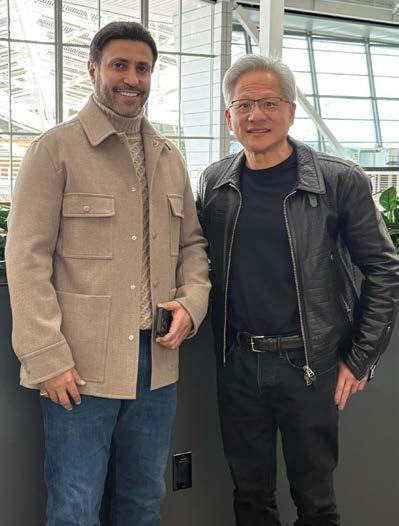
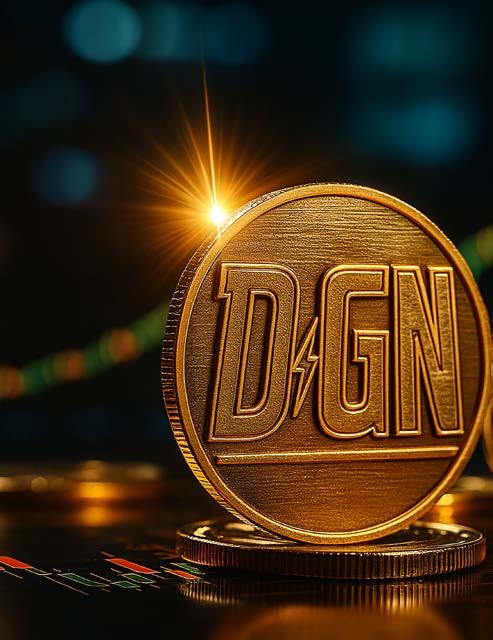
a system where compliance is not retrofittedit’s embedded from day one.
Christopher J. Kelly, a Goldman Sachs veteran and co-founder, explains: We brought TradFi logic into droppRWA, ensuring every tokenized deal meets institutionalgrade standards.”
This ethos is reflected in droppRWA’s “Insurance Tower” model, designed to mitigate risk through layers of protection - from smart
contract auditing and data oracle security to global reinsurance coverage.
“We’re building risk frameworks that mirror structured finance,” says Kelly. “And we expect rating agencies to evolve alongside this market.”
Gurps Singh Rai underscores the importance of practical utility: “Institutions aren’t adopting droppRWA because it’s flashy. They’re adopting it because it makes capital

formation more agile, liquidity more accessible and compliance more programmable.”
To that end, droppRWA has developed real-time regulatory APIs, automated audit trails, and a modular architecture that enables interoperability with traditional financial systems.
“It’s not about replacing the old system overnight,” Rai adds. “It’s about building a better onealongside it, with clearer transparency and smarter
governance baked in.”
This commitment to institutional adoption is why droppRWA is gaining the trust of sovereign wealth funds, commodities trading groups, traditional banks and even government bodies. The result is a tokenization infrastructure that feels less like a blockchain experiment - and more like the future of finance.
One of the most distinguishing features of droppRWA is its belief that infrastructure - not speculation - drives the future of tokenization. The founders agree that without dependable, transparent and interoperable infrastructure, no tokenized asset can gain institutional trust or regulatory approval.
As Gurps Singh Rai puts it: “We’re not in the business of hype. We’re building programmable economies. And programmable economies require programmable trust.”
This means smart contracts must not only automate ownership and revenue distribution but also integrate real-time compliance checks, data oracle-based asset tracking and instant dispute resolution. droppRWA’s infrastructure supports modular APIs that enable regulators and financial institutions to plug into the system without friction.
Christopher J. Kelly
highlights the parallels to traditional finance: “We’re introducing concepts like tranching, securitization, insurance and credit rating - within a blockchain-native framework. It’s a fusion of Wall Street fundamentals and Web3 transparency.”
The team's Insurance Tower architecture provides layered risk mitigation through comprehensive coverage spanning both Web2 and Web3 environments.
Traditional insurance providers handle underlying asset protection, while Bermuda-based specialists like BREACH and Web3 insurance wrappers protect against smart contract vulnerabilities and oracle failures.
"Companies like Breach are crucial because they understand both traditional risk assessment and blockchain-specific exposures," Kelly adds. "This hybrid approach is what unlocks real institutional capital - investors need to see that every layer of risk, from physical asset damage to code exploits, has proper coverage and clear liability frameworks.
As Rai emphasizes, “droppRWA's mission isn't to disrupt traditional finance - it's to provide it with cryptographic truth. "We're building the infrastructure layer that makes every asset programmable, every transaction verifiable and every economic relationship mathematically certain."
Tokenization, the founders agree, isn’t about revolution - it’s evolution.
“Within a decade, the majority of securities will be natively digital,” Kelly predicts. “Tokenized will be as normal as digitized.”
Al Monai points to Vision 2030 and the birth of digital-first infrastructure that includes retail investors, foreign capital and AI-led platforms.
“We’re creating the rails for a digital economy - not just in Saudi, but globally.”
Onozawa sees AI and blockchain as symbiotic enablers. “The more we use AI to manage complexity, the more human creativity can focus on building value.”
And Rai? He says "We're making it possible for a kid from the Bronx to own a piece of a Ugandan goldmine with the same ease as buying a pair of sneakers. That's not just technology - that's economic democracy at scale."
The rise of droppRWA signals a broader transformation underway in global finance. As governments, enterprises and individuals rethink value, ownership and inclusion, real-world asset tokenization is no longer a speculative concept. It’s a deployed reality.
With vision, regulation and trust aligned, droppRWA isn’t just watching the future happen. It’s building it.
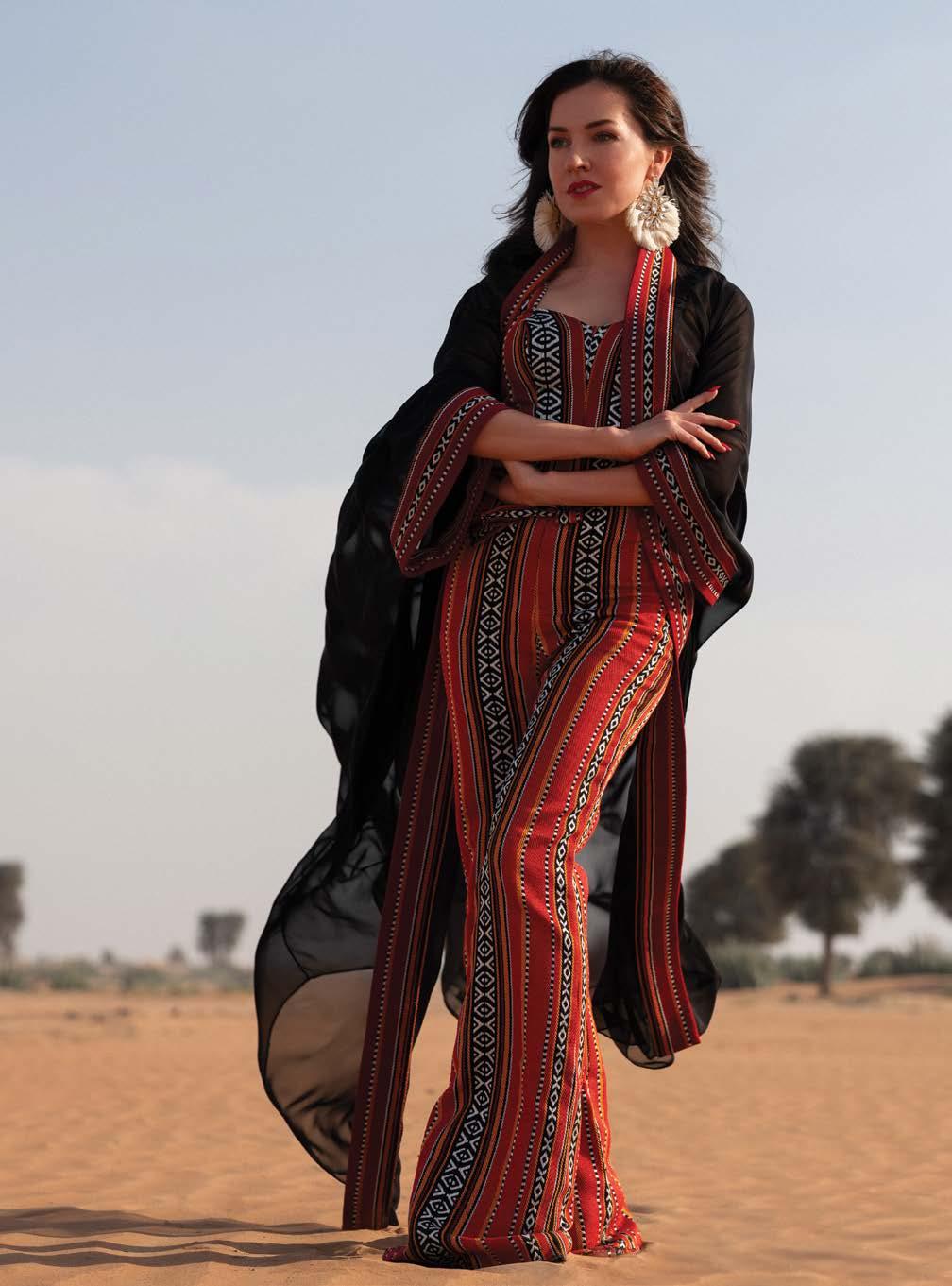
KATYA KOVTUNOVICH’S ENTHRALLMENT WITH THE UAE’S TRADITIONS AND AN INNATE LOVE FOR FASHION CULMINATED IN THE LAUNCH OF HER EPONYMOUS CLOTHING LINE ELEVEN YEARS AGO. TODAY, WITH MULTIPLE CELEBRITIES AND LOCAL GOVERNMENT DIGNITARIES HAVING DONNED HER DESIGNS, SHE SHARES HER HOPES FOR THE BRAND TO BECOME GLOBALLY SYNONYMOUS WITH THE WIDER EMIRATI CULTURE /
by AALIA MEHREEN AHMED
Even before I get to meet UAE-based fashion designer and entrepreneur Katya Kovtunovich in person, at the Pullman Downtown Hotel in Dubai on a searing summer afternoon, there are enough instances during our prior email and phone conversations to suggest that a lot of her decisions in life are wildly fuelled by two aspects: creativity and inspiration (the most striking one being when she shared that she’d stopped all her sports-related activities two days before the interview to “get back to my deeper creative self” for the main day– a practice she said she’d learnt from professional ballet dancers and MMA fighters). Now, some might conflate the two but, as you will gradually find out, while creativity has been innate to Kovtunovich, it is her sources of inspiration that have channeled where and how she has allowed her imagination to flow. “On my seventh birthday, I got a Barbie doll as a gift,” Kovtunovich recalls. “Something about beauty mesmerizes me- she was so perfect and I was like, “Oh,
my God, let’s design something beautiful to dress her.” It just happened completely out of nowhere! I lived in a very simple family. I never went to a restaurant with my parents. We didn’t have a luxurious lifestyle. So all we did was go to the forest, take sausages, and grill them on the fire. And we spent weekends not in fancy places but in the garden taking care of carrots and doing very simple things. That was my life. But maybe because I was reading books that were inspired by the Middle Ages, when women wore long dresses with fur…something from these books inspired me so much that I started designing clothes for my Barbie. So that’s how it happened. Out of nowhere!”
Many years later, it was precisely that internal concoction of inspiration and creativity that led Kovtunovich to create a unique fashion line using the Sadu fabric- a traditional textile, made up of intricately weaved geometric patterns, that is deeply associated with the UAE’s bedouin culture and has historically been used only to make tents, carpets, camel
saddlebags, majlis seating, and decorative items. Launched in 2014, the eponymous fashion brand —which offers flowy tunics and dresses— turns eleven this year. Over the past decade and a bit, the brand has been recognized by the UAE government multiple times, with Kovtunovich having been invited to be a part of the official delegation representing the UAE at
“
WE HAVE SHIPPED IT TO OVER 70 COUNTRIES. WHEN I GO THROUGH THE LIST OF COUNTRIES WE’VE SHIPPED IT TO, I’M LIKE, ‘OH, MY GOD. PEOPLE IN HALF OF THE WORLD’S NATIONS HAVE MY SADUTUNIC!’”
both Expo 2015 Milano and Expo 2020 Dubai. Kovtunovich’s designs –tailored for both women and men– have been worn by global icons such as American singer Lady Gaga, Italian tenor Andrea Bocelli and his wife Veronica, and Hollywood star Lindsay Lohan. In further proof of its allure, the Katya Kovtunovich brand has also been worn by important UAE government officials including H.E. Ohood bint Khalfan Al Roumi, the current Minister of State for Government Development and Future, who sported a jacket by the brand at a United Nations speech she delivered during her tenure as the UAE Minis-
“
CREATIVITY CAN SOMETIMES COME FROM LACK OF RESOURCES; NOT FROM HAVING ALL THE RESOURCES. WHAT I SEE NOW IN THE WORLD…ACTUALLY, I FEEL A LITTLE SORRY FOR THE KIDS NOWADAYS BECAUSE THERE IS TOO MUCH. YOU GO TO A CREATIVITY SHOP, THERE IS EVERY SINGLE THING YOU DREAM OF. IN MY CHILDHOOD, THERE WAS NOTHING. SO I HAD TO COME UP WITH THINGS.”
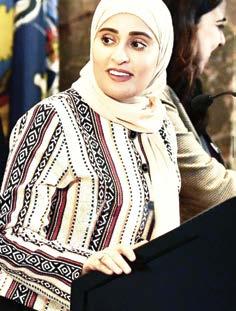
→ H.E. Ohood bint Khalfan Al Roumi, the current UAE Minister of State for Government Development and Future, sported a jacket by Katya Kovtunovich at a United Nations speech she delivered during her tenure as the UAE Minister of Happiness and Wellness
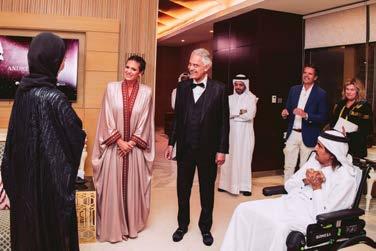

ter of Happiness and Wellness; as well as H.E. Reem Bint Ebrahim Al Hashimy, Minister of State for International Cooperation and the CEO of Expo City Dubai Authority.
“This is my absolute best-selling piece!” Kovtunovich tells me, pointing to the plain black tunic embroidered with the eye-catching red Sadu fabric, gracefully laid out behind us on a mannequin. “We have shipped it to over 70 countries. When I go through the list of countries we’ve shipped it to, I’m
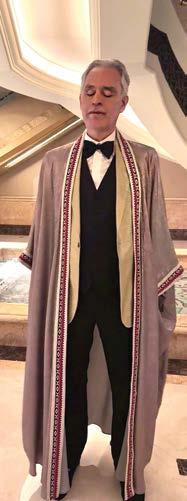
like, ‘Oh, my God. People in half of the world’s nations have my Sadu tunic!’ The pieces that are heavier, they’re harder [to design] because they need to be fitted. So you need to create more sizes. But with the tunic, it’s a free size, and has a flowing silhouette. It gives you this royal flow when you walk. Women love it! Women of all nationalities; of all faiths. Muslim women wear it as abaya [a traditional outer garment worn by many Muslim women]. Non-Muslim women wear it for informal events or to the
AT THE TIME, PEOPLE RIDICULED MY IDEA- THEY COULDN’T FATHOM A FURNITURE FABRIC BEING TURNED INTO TEXTILES. BUT FOR ME, WHAT KEPT ME GOING WAS MY GOAL TO MAKE SADU RESPECTED BY EVERYONE…I ACTUALLY LIKED THIS FABRIC AND I WANT TO MAKE IT WORLD FAMOUS. I WANTED TO MAKE IT A SYMBOL OF UAE CULTURE. THAT WAS MY MOVING FORCE, AND I ACHIEVED IT.”
beach. And actually a lot of girls who come to Dubai, they want to wear something inspired by the abaya, but they don’t necessarily want to wear the abaya itself because it makes them look like they want to be Emiratis. But what I created, it’s a piece that shows respect to Emirati culture without trying to emulate it. It’s cultural diplomacy, you know? I get goosebumps. This, for me, is so important…to teach people respect because you come to a different world. I myself didn’t know anything about this world. It took years to learn, to go to people’s homes, to talk, to ask questions, to really understand the UAE culture. So that’s what made me so passionate about sharing it [with the world].”
But to understand how Kovtunovich landed upon such an unconventionally innovative idea –i.e. creating a clothing line using furniture fabric– it is necessary to continue the opening story which takes place in Sakhalin, a small town in Russia, where she grew up. A life of frugality meant that Kovtunovich’s family couldn’t always afford what she wanted growing up– which, in hindsight, allowed her creativity to flourish. “I would walk into a store and always choose the most expensive thing, and my parents couldn’t afford it,”
she recalls. “So I thought, okay, let me try to take a piece of this curtain or a small piece of that carpet and
try to design something. I once took my grandmother’s old skirt and made it into a jacket. By the age of
nine, I started designing for myself!
Creativity can sometimes come from lack of resources; not from
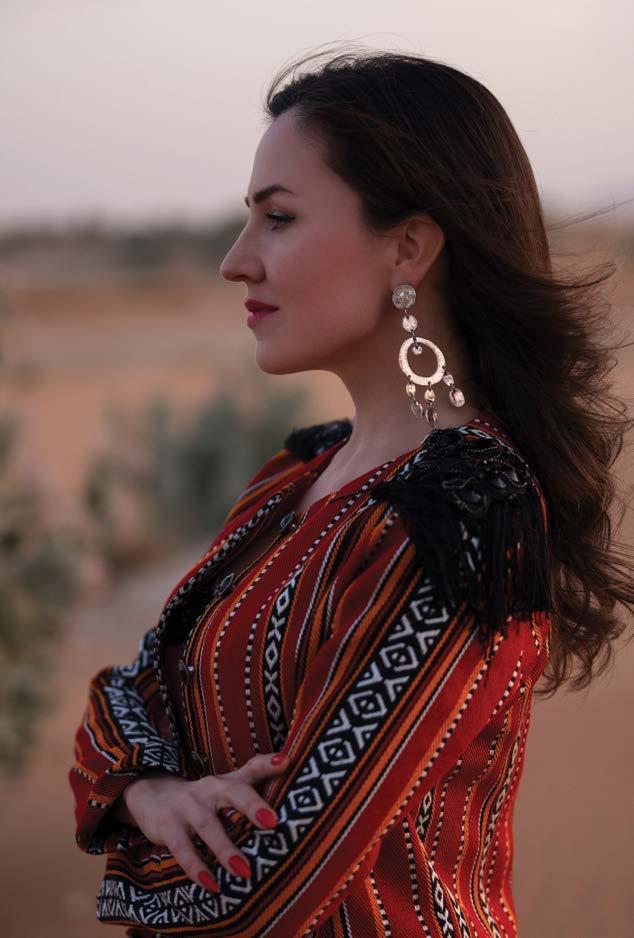
“
I ALWAYS ASK QUESTIONS BEFORE I DO ANYTHING. EVEN BEFORE I WRITE A PRESS RELEASE OR I WRITE A POST, IF IT CONCERNS THE UAE CULTURE, I HAVE TO ASK AT LEAST THREE TO FOUR PEOPLE TO MAKE SURE ALL OF THEM ARE OKAY WITH THAT.”
having all the resources. What I see now in the world…actually, I feel a little sorry for the kids nowadays because there is too much. You go to a creativity shop, there is every single thing you dream of. In my childhood, there was nothing. So I had to come up with things.”
Fast-forward to a few years later, and Kovtunovich — who had by then managed to graduate with a degree in Linguistics from the prestigious St. Petersburg State University in Russia— found herself struck by another lightning of inspiration. This time, it was courtesy the tale of renowned British fashion designer and couturier Alexander McQueen. “It all
started because of a magazine interview, which is why I believe magazines are so important, because you never know who it can inspire,” Kovtunovich says. “I read an interview with Alexander McQueen, where he said that he’s the son of a taxi driver and that he was poor. His parents couldn’t afford a fashion school. And instead of crying and being sad for himself, he went to Savile Row, which is a street where all the tailors are in London, and worked there for free. In return, he was learning. I was like, wow, this is brilliant!”
What that one moment of awe sparked in Kovtunovich was a decision to move to London with a mere US$200 in her pocket. Working multiple jobs at a time to sustain herself in the new city, she set out with a singular goal: to make it to the top of the fashion industry. “That is what I said to myself and then, three months later, I was invited for an interview at British Vogue to do an unpaid work experience internship,” Kovtunovich reveals. “When I got that phone call, I remember jumping up and down. My dream had started coming true in so many ways! I used to wake up at 5 a.m. every day back then, because I was doing four jobs. I had a night job at a restaurant because at least there I could get good food once a day. I also used to work at a French bakery on weekends. Then I was working at Vogue itself, so I was writing articles late into the night because I was starting to be a journalist. All these experiences I was gaining…
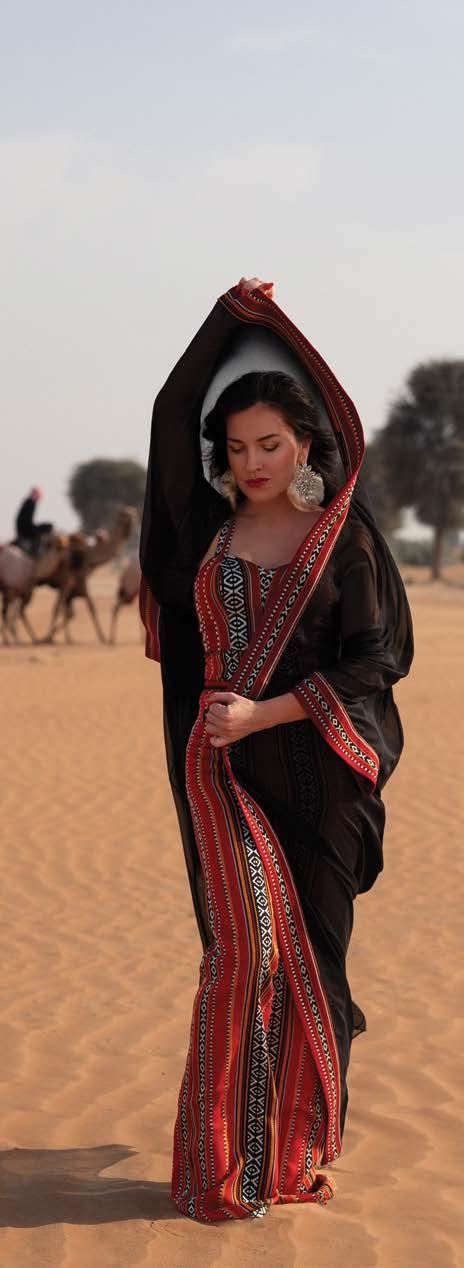

not everyone has done it. So I was really doing everything in my power. And I was so happy!”
It was in the midst of this whirlwind phase of Kovtunovich’s life, when she was working as a cashier at a Prada store in London, that she forged a cordial friendship with the store’s Director at the time— a bond that eventually opened Kovtunovich’s doors to the UAE. You see, when Kovtunovich reconnected with her former manager, long after both their tenures at Prada had come to an end, he was already working for Chalhoub Group, a UAEbased luxury goods retailer and distributor that has a strong presence in the fashion industry. It was then that he introduced Kovtunovich to a marketing
to learn from her. So it was a great idea for me to learn how to do marketing from a big fashion brand.”
It was during those initial days in the Emirates, in the middle of a spontaneous visit to the old souqs in Dubai’s Satwa area to discover more about the local fashion scene, that Kovtunovich first came across the Sadu fabric. “I saw a roll of it, and I was like, ‘Oh my God, this is amazing!’ Then I pulled a few meters out, started measuring it, and realized I wanted to make a coat out of it. That’s why I brought this coat [points to her outfit]. Because all of this started with a coat! I made the first one by myself that very night using a sewing machine at the house of a friend. I thought to myself that I
coats and skirts made up of Sadu , which picked up steam everywhere but in the UAE- including a time where her coats got featured in a two-page spread in fashion magazine Harper Bazaar’s Russia edition. “At the time, people ridiculed my idea- they couldn’t fathom a furniture fabric being turned into textiles,” she adds. “But for me, what kept me going was my goal to make Sadu respected by everyone. At the time, people laughed at me. They said, “Nobody will wear a sofa. Do you know it’s a sofa?” I received so much of that. But I actually liked this fabric and I want to make it world famous. I wanted to make it a symbol of UAE culture. That was my moving force, and I achieved it.”
With her brand now
I WANT MY DESIGNS WITH SADU TO BE AN OFFICIAL GIFT FROM THE UAE TO THE PEOPLE WHO COME HERE. THIS IS WHAT I ENVISION NEXT, AND I’M JUST WAITING FOR THE RIGHT MOMENT FOR THIS TO HAPPEN. AND THINGS WILL ALWAYS HAPPEN AT THE RIGHT TIME; THIS IS SOMETHING I’VE LEARNED.”
assistant job opening at French luxury fashion brand Kenzo. “It was a big decision for me to move to Dubai,” Kovtunovich recalls.
“Because at the time I had a visa that was leading to a British passport- I knew I had to give up that opportunity. But I decided to come here for 10 days and give myself the time to discover what Dubai is. And when I did, I was so happy for no reason. Out of nowhere, I got so much happiness. So I said, ‘No, no, no, I’ll choose happiness.’ That’s how I came here in 2010. I really liked my boss at Chalhoub Group too; I really wanted
wanted to wear it back in Russia when it’s winter. And when I eventually did when I went back home for a few days, the reactions I got were crazy. There was a special energy, because everybody wanted to talk to me about it. So I thought, ‘God is trying to tell me something…!’”
That was in early 2011 (later in the same year, in a fateful turn of affairs, the traditional UAE Sadu was added to the UNESCO list of Intangible Cultural Heritage of Humanity). In the months that followed, Kovtunovich continued making jackets,
accompanied with the hashtag #SaduGoesGlobal –validated by the multiple nations the brand ships to, and the myriad of global and regional celebrities who’ve worn its designs– Kovtunovich certainly has achieved her goal. And the turning point came when, in early 2014, UAE-based architect, designer and fashion entrepreneur May Barber expressed her interest in having Kovtunovich display her pieces at a Ramadan market in Dubai. “It was during that exhibition that May suggested that I pair Sadu with a sheer fabric. But I said, this fabric is
furniture fabric; it’s heavy! It’s not going to go together with the sheer fabric. She persisted and then said, “why don’t you try something with chiffon?” I still didn’t want to do it. But then I came to my studio, threw a piece of chiffon on a mannequin, and cut a stripe here and there. And this is how the tunic happened! We then made another similar tunic, but with more intricate work, which did well. But you know what? The most simple thing –this black tunic– the thing I expected the least to be a success, became my best-selling piece!”
It was that year that the Katya Kovtunovich brand officially launched in the UAE. Since then, Kovtunovich has had a series of milestones, including the aforementioned Expo 2020 invite where she sold 500 pieces to visitors from across the world. The brand has also been exhibited at the iconic luxury hotel Burj Al Arab. “There was also this time I was offered a kiosk by The Dubai Mall where I got to sell over a 100 tunics in just a week!” she tells me. “They had two free spots at the mall, and wanted to support local designers who bring value to their customer experience- and I was one of the two chosen designers. This was so mindblowing to me because they charged a very small amount from our overall sales. And we ended up selling so many pieces to people from China, Australia, and so many other nations– all with no marketing, no advertisements. Simply because people wanted to buy my designs as a souvenir from the UAE.”
Now, it is evident in Kovtunovich’s words that it has been her deep affection for the UAE/Emirati culture that has allowed her to stay dedicated to the brand– especially in
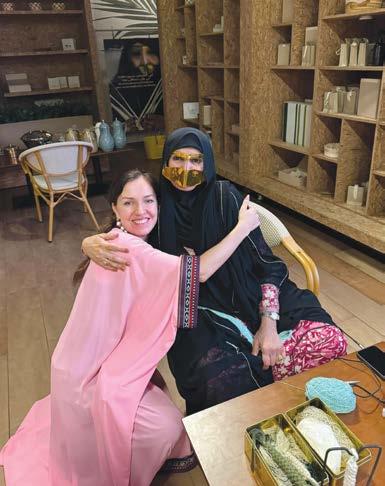
the face of ridicule early on. It is that respect that has also allowed her to carefully tread the line between cultural appreciation and cultural appropriation. So just how did a Russian who learnt fashion in the heart of London manage to create a design that not only pays tribute to the Emirati culture but has been heartily accepted by its people too? “It’s very simple- you just ask!” she says. “Before I design anything, I will always ask my Emirati friends, and I have so many of them. I will reach out to my Emirati male acquaintances and friends if it has something to do with men’s fashion. For example, I made sure to ask around if it is okay for men to wear my tunic as a bisht. I always ask questions before I do anything. Even before I write a press release or I write a post, if it concerns the UAE culture, I have to ask at least three to four people to make sure all of them are okay with that. For me, this is so important because I understand that it’s not my culture and I cannot know everything. And of course, if the Emiratis support what I do, then why should I listen to somebody else’s opinion? There are actually plenty of people from other nationalities who wrote to me using phrases like ‘cultural appropriation’ or saying that an abaya shouldn’t be transparent or worn to the beach. But, you know, the very first comment I got from Dubai Tourism was that it is amazing that my designs can also be worn by men. So for me the support from Emirati people means everything. For me, the fact that UAE government officials wore my pieces on multiple occasions, or that Emiratis say what I do is fantastic, it makes me cry! It really makes me cry because how could, like you say, a girl from Russia create something that wins so much respect from Emiratis when, really, I’m nobody to them. But I have been so lucky to be with the Emirati people from day one- to be asked to observe Ramadan together, and invited to weddings and special occasions. So I want to share that with others. That’s why I decided that my work with Sadu will be like a symbol of introducing the UAE to the world.”
But beyond the cultural implications, there is also the fact that Kovtunovich has achieved something that few in the fashion world are able to achieve: a timelessness in her designs. In an industry where trends change often and new collections are dropped every season, the Katya Kovtunovich brand has managed to remain appealing and fresh even after a decade in the business with the same trademark designs. When asked how she’s managed to pull this off, the designer says she’s befuddled by this result too. “I also ask myself this question because honestly sometimes I don’t understand,” she says. “I’ve, of course, tried to introduce other designs along the way and while they’ve done well, the best-selling piece is still the same black, very simple tunic. Maybe it’s like a Chanel bag, or like a Diane von Furstenberg wrap dress- you know, like every designer has their signature, maybe this has become a signature of my brand. So, even if I try to introduce something new, people don’t necessarily look at it with the same passion. Honestly, I don’t know. I feel sometimes simplicity has the most power, because when you try to overcomplicate things, it doesn’t have the same
energy. But to be honest…I don’t know, I wish I knew the answer.”
At the heart of the brand’s success is perhaps its strategic pricing strategy —the flagship tunics are sold at a modest range of US$250-$350— which have earned it a spot in the “affordable luxury” category. Kovtunovich says this has been an intentional move on her part. “It was an absolute must for me to keep the prices accessible, because my idea was that every woman who works, who has her own salary, should be able to afford my piece,” she says. “Maybe not from one salary if she’s just a beginner. You know, I knew girls who work at hotel receptions buy my pieces. And to me, that means so much! Because I always teach young girls, please, if you need to save up money for fashion, then don’t! Save up for your education. Save up, learn a new language. Save up for your career! Take a course that will enhance your career. And then when $250 is not a problem, you come back and buy it. Because nobody teaches us that. Why is it that for someone like a Mark Zuckerberg, it’s okay to wear the same t-shirt every day, but a woman has to invest all her salary in her shoes and outfits. I don’t agree with that. If you have other priorities, please, focus on them!”
Kovtunovich’s statements here may seem to be at odds with the purpose of running a business. But owing to her own early life experiences –and entirely in line with her previous comments to use Sadu as a means to connect cultures and foster respect for
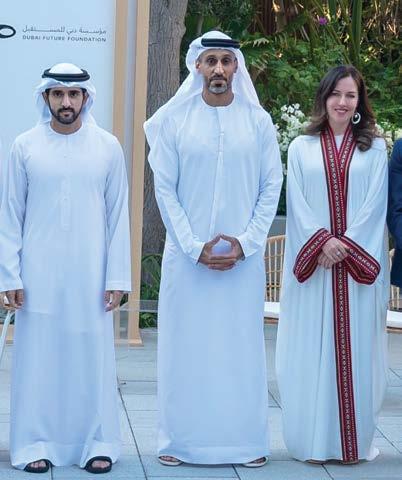
all– the designer is adamant not to position her brand as a financially unattainable one. “For a large portion of my life, I used to buy from vintage stores [a shop that sells secondhand high-quality and fashionable items from a particular era or period],” she tells me. “And, you know, the excitement is the same because you’re buying something that’s new to you, and you actually feel the same emotions you have while buying in the most expensive store. Look, when the most expensive stores become your norm, then you can absolutely buy from there, of course. But to do that is also a kind of freedom, you know, where you have the privilege to choose. But having this
[brand] or that, doesn’t define you. Your story defines you. Struggles that you overcome define you.” At this point, through tears stinging her eyes, she adds, “We all have a different starting point. If I compare myself to, say, someone born in New York and think about how successful they are? Or ask myself, well, why are they billionaires and I’m not? But we all have so much to overcome, and all of it is different. We cannot compare ourselves with a person who is already born like a plant that is under the land with a certain fertilizer. And then there’s you, the plant that’s growing through asphalt. I am this plant, you know, that grew up against all odds. And I’m here!”
Despite the hurdles, having achieved much of what she set out to do, Kovtunovich is now committed to her next big goal: for Katya Kovtunovich pieces to become an official souvenir of the UAE. “I want my designs with Sadu to be an official gift from the UAE to the people who come here,” Kovtunovich declares. “This is what I envision next, and I’m just waiting for the right moment for this to happen. And things will always happen at the right time; this is something I’ve learned. When you want it, it will not happen. In 2023, I was invited to meet H.H. Sheikh Hamdan bin Mohammed bin Rashid Al Maktoum, The Crown Prince of Dubai, when I was chosen among 26 leading experts, innovators, entrepreneurs from different industries to join the Dubai Future Fellowship program under His Highness’ patronage. They chose me from fashion because they wanted somebody successful and visionary, so I was very honored. But it came out of nowhere. Maybe I wish this had happened 10 years ago, but it happened then. So sometimes things happen in their own time. I’ve already built my name; people already know me. How did a girl from a small Russian town get recognized by dignitaries from the UAE government? This is something you cannot buy. Nowadays you can buy followers. You can buy a lot of things.But you cannot buy respect. For me, that’s so important as I forge ahead.”
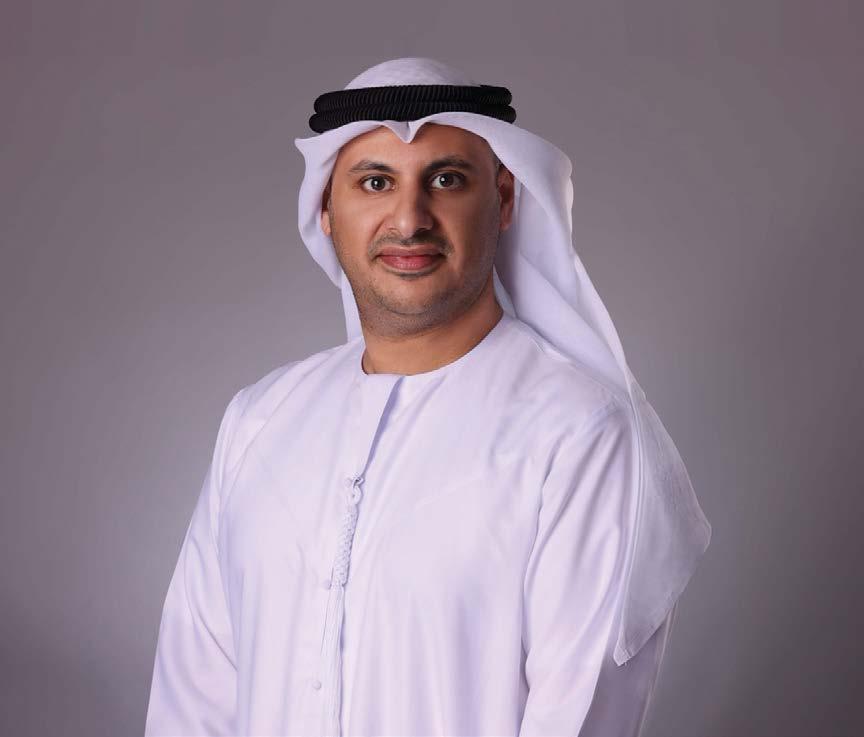
Inside Shurooq’s model of enterprise-driven development, where infrastructure meets opportunity and entrepreneurship is shaped by design, not chance.
In a region defined by rapid growth and high-stakes ambition, the Sharjah Investment and Development Authority (Shurooq) has charted a distinct course—one built on measured resilience, long-term value, and economic diversification that places people and purpose at the centre of progress.
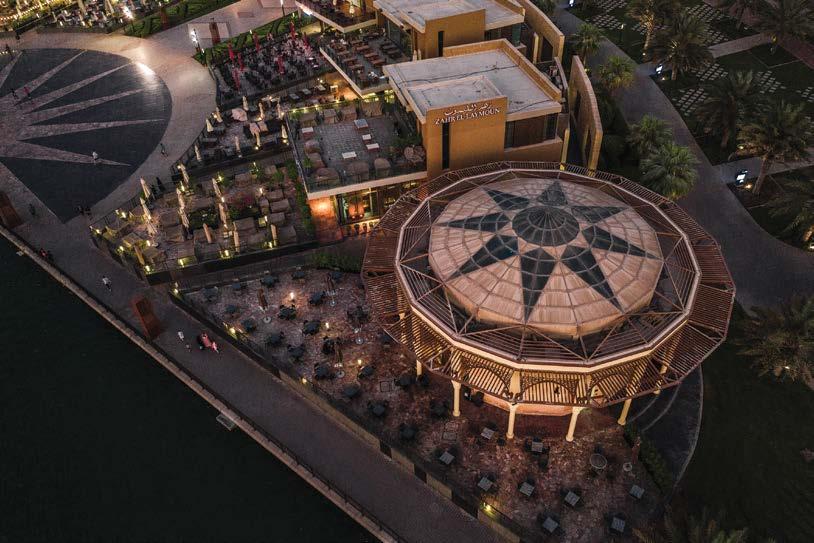
Fifteen years since its establishment, Shurooq’s portfolio spans AED 7.2 billion in total investments and partnerships across 52 integrated developments. But to reduce its story to numbers would be to overlook its real achievement: building an economy where purpose, performance, and people align. Across real estate, tourism, cultural development, and commercial
infrastructure, Shurooq has consistently prioritized value over volume. Each investment is designed not just to fill space, but to fill gaps — in opportunity, employment, sustainability, and competitiveness.
“True development is not measured by concrete alone,” says H.E Ahmed Obaid Al Qaseer, CEO of Shurooq.
“It’s measured by the confidence we generate — among investors, entrepreneurs, visitors, and our own people. That trust is our most
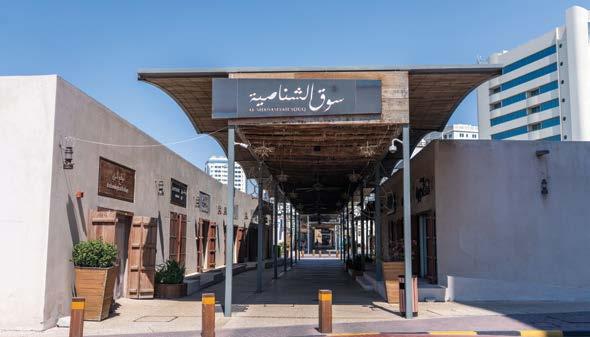
The real return on investment is not in what we build, but in what we enable— jobs, ideas, partnerships, and long-term confidence. That’s the business Shurooq is in .” “
TRUE DEVELOPMENT IS NOT MEASURED BY CONCRETE ALONE. IT’S MEASURED BY THE CONFIDENCE WE GENERATE — AMONG INVESTORS, ENTREPRENEURS, VISITORS, AND OUR OWN PEOPLE. THAT TRUST IS OUR MOST VALUABLE RETURN.”
valuable return.”
This philosophy has shaped how Shurooq operates. It has created over 5,000 jobs across sectors and formed more than 10 joint ventures, building platforms that invite both local enterprise and global investment. Its real estate developments alone have attracted buyers from nearly 100 countries, reflecting the emirate’s growing appeal as a stable, opportunity-rich market.
Shurooq’s impact isn’t measured solely by projects completed or revenue generated. Its true legacy lies in the commercial ecosystems it has enabled—particularly for small and medium-sized enterprises (SMEs), which now form the backbone of the UAE’s economic agenda. Unlike accelerators or incubators, Shurooq doesn’t provide direct mentorship or funding. Instead, it builds the destinations that serve as the platforms on which entrepreneurs can succeed. From leisure and tourism destinations to revitalized heritage quarters, each Shurooq asset is developed with commercial visibility, footfall, and long-term
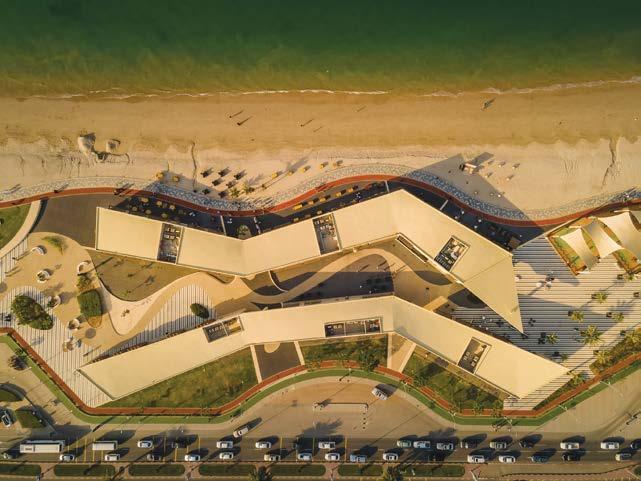
access in mind.
Today, over 600 businesses operate across Shurooq-managed destinations. Among them: 87 SMEs and nearly 300 women-led enterprises, active in sectors ranging from artisanal crafts to boutique hospitality. These businesses aren’t positioned on the periphery— they are woven into the very fabric of Sharjah’s cultural, tourism, and retail assets.
This is particularly visible at places like Al Heera Beach, Al Qasba, Al Majaz
Waterfront, Khorfakkan Beach, and the Heart of Sharjah, where hundreds of local vendors and creatives run outlets, design studios, and F&B concepts. In Shurooq’s model, place-making is not a backdrop to enterprise—it is the foundation of it.
Shurooq from traditional development entities is its infrastructure-led approach to empowerment. Instead of compet-
ing with incubators or SME-focused entities, it complements them—offering built environments that facilitate access, footfall, and operational viability.
Working closely with semi-government entities, Shurooq ensures that entrepreneurs operating within its destinations benefit from fast-tracked licensing, regulatory ease, and business support services.
“We are the platform builders. Others deliver capacity-building. Together, we support
long-term enterprise growth,” says Al Qaseer. This collaborative model is bearing measurable results. In the 2024 Global Startup Ecosystem Report, Sharjah ranked 4th in the GCC and 7th in the MENA region—an indication that the emirate is gaining recognition not just for infrastructure quality, but for its start-up friendliness and business accessibility.
Shurooq’s development philosophy has always been guided by Sharjah’s broader vision—anchored by the directives of His Highness Sheikh Dr. Sultan bin Mohammed Al Qasimi, Supreme Council Member and Ruler of Sharjah, and the leadership of H.E. Sheikha Bodour bint Sultan Al Qasimi, Chairperson of Shurooq. Under their guidance, the Authority has embraced long-term thinking over short-term gain, focusing on sustainable sectors that serve both economic and societal goals. Its real estate investments have delivered returns without inflating risk. Its hospitality assets, including the eco-driven Sharjah Collection, have married tourism with SME integration. And through destinations that welcome both global investors and local artisans, Shurooq has proven that sustainability and profitability can move in lockstep.

We are the platform builders. Others deliver capacity-building. Together, we support longterm enterprise growth." “
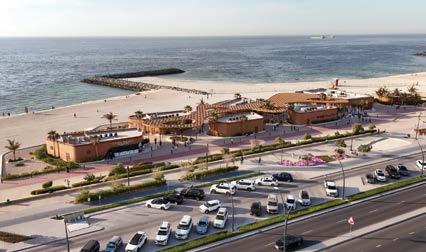
Through the Sharjah FDI Office (Invest in Sharjah), its dedicated FDI arm, Shurooq has attracted AED 96.75 billion in capital since 2016, across 617 projects, contributing
to 46,761 new jobs. Yet beyond the statistics, Shurooq’s leadership remains focused on one thing: creating a development legacy that enables others to grow.
As the world recalibrates its economic assumptions, Shurooq continues to prioritise integration, circular economies, and enterprise access. New developments will carry forward the same principles that defined the last 15 years—accessibility, heritage, environmental consciousness, and inclusivity—while embracing innovation and entrepreneurship at their core.
In the words of H.E Ahmed Obaid Al Qaseer, “The real return on investment is not in what we build, but in what we enable—jobs, ideas, partnerships, and long-term confidence. That’s the business Shurooq is in.” For entrepreneurs looking not only for capital or incubation, but for a place to grow their vision—the path, quite literally, runs through Sharjah.

While innovation, service excellence, and financial stewardship are common talking points among hotel general managers, Mehmet Tulunay exemplifies these values in action.
At one of the UAE capital’s most iconic hotels -Rixos Marina Abu Dhabi- his leadership is not only reflected in impressive performance metrics, but also in the deeply personal guest testimonials that speak volumes.
Tulunay is already considered a benchmark of leadership and excellence in the hospitality industry - he boasts over 30 years of professional experience, including the past 14 years as General Manager of city hotels and resorts under the esteemed
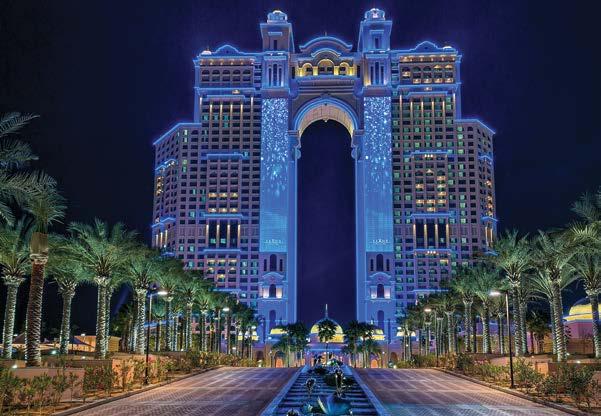
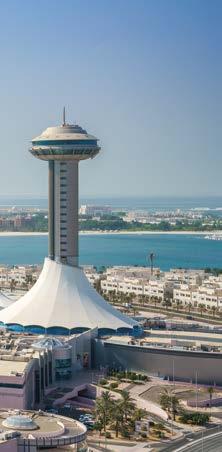
Rixos brand. He has led eight properties to success, including four operational and four pre-opening. However, listening to Tulunay recount guest experiences reveals that he is one of the rare General Managers who have transcended luxury in the traditional sense and managed to deliver not just comfort and indulgence, but also emotional safety, dignity, and a deep sense of belonging.
“We once welcomed a guest from a different cultural background who felt the check-in process lacked sensitivity to their traditions,” Tulunay recalls. I met with them personally, not just to apologize, but to genuinely understand their perspective.” Through that conversation, Tulunay uncovered small yet meaningful ways in which his team could make their stay more reflective of their heritage, and created a personalized welcome amenity, adjusted in-room details, and curated a bespoke dining experience celebrating their culture. “By the end of their stay, what began as disappointment turned into sincere appre-
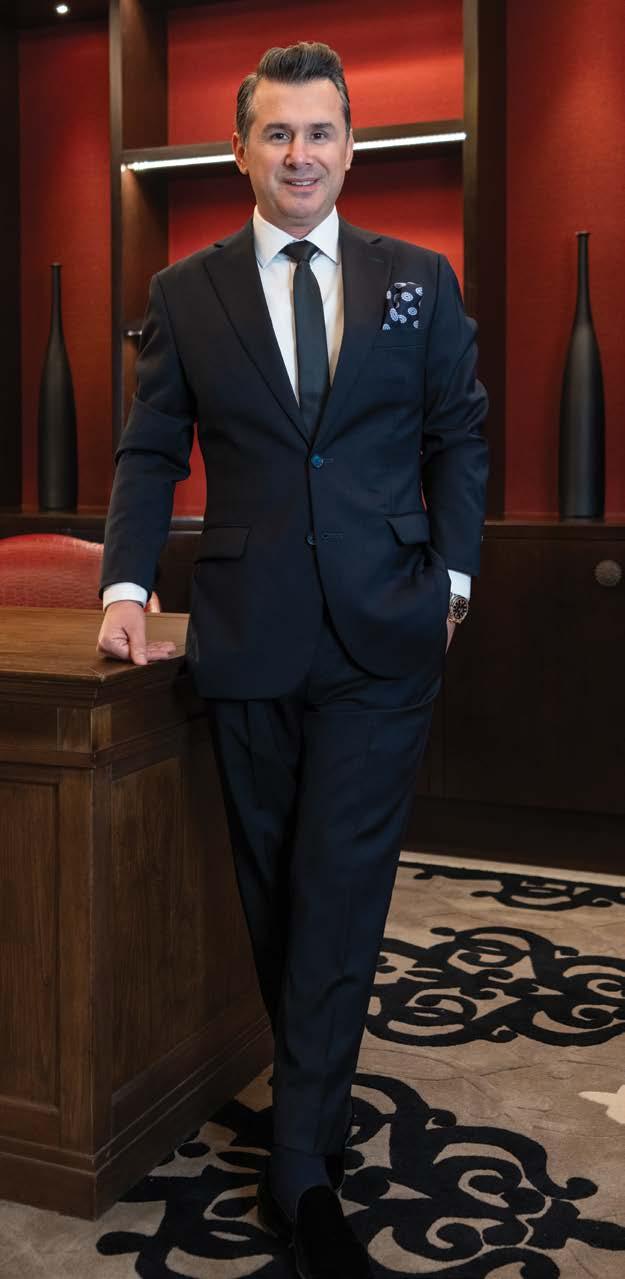
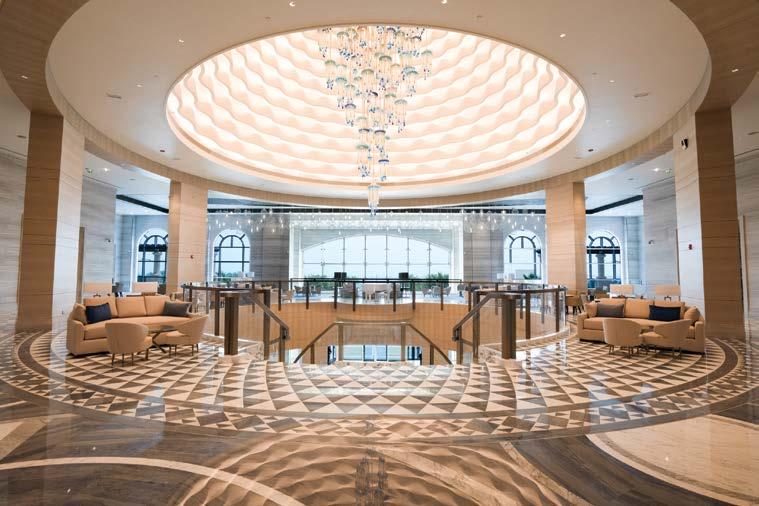
ciation,” Tulunay says. “The guest left us a handwritten letter expressing how deeply they felt respected and understood. That moment reminded us again that true hospitality goes beyond service, it’s about cultural empathy, emotional intelligence, and the power of human connection.”
Every insight that Tulunay shares is backed by numbers that speak as convincingly as his words. In 2024, under his forward-thinking approach, Rixos Marina Abu Dhabi achieved outstanding performance, with the resort gradually transitioning its all-inclusive offerings to an ultra all-Inclusive model. This transformation attracted new markets, including the
EU and the UK, leading to occupancy increasing by 30%, and total guests in-house by 35%, average daily rate by 16%, all-inclusive share by 32%, and total revenue by 43% - all year-on-year. “I take great pride in our all-inclusive concept, which redefines luxury hospitality by offering guests an immersive, high-end experience,” Tulunay says. “Another initiative close to my heart is Ride with Rixos, our cycling event that promotes fitness and fosters community connections. With participation ranging from 100 to 250 cyclists, the event has become a staple in Abu Dhabi’s cycling scene. These initiatives reflect my vision of integrating sustainability and social
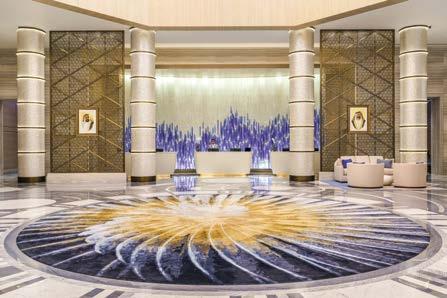
responsibility into the resort’s culture, ensuring we create meaningful connections and contribute to a healthier, more inclusive future.”
Tulunay also led the strategic upgrades to several of the hotel’s key dining venues, including Vero Italiano, Isla Beach Bar, and People’s, while overseeing the expansion of The Turquoise Restaurant and introducing new concepts such as The Flame and Prive Lounge. These additions brought our total number of dining outlets to 16, further positioning Rixos Marina Abu Dhabi as a premier culinary destination.
On the entertainment front, he spearheaded the
transformation of the Mini Club into the immersive Rixy Kids Club, enhanced the Amphitheatre and Sports Club experience, and expanded the hotel’s outdoor facilities with new courts for tennis, football, volleyball, and basketball.
“To diversify our leisure offerings, we are preparing to launch the Aqua Tower and Splash Park, introducing exciting water attractions that appeal to both families and thrillseekers,” Tulunay says. “In line with market demand and our all-inclusive strategy, I also initiated a comprehensive room reconfiguration project to better accommodate larger families, maximizing both occupancy and revenue potential.”
Looking ahead, Rixos Marina Abu Dhabi is developing a Gathering Lounge and a private beach zone with exclusive cabanas and an adultsonly area, set to debut by 2026. “These enhancements reflect my longterm vision to firmly establish Rixos Marina Abu Dhabi as a benchmark in the region’s luxury all-inclusive segment, combining high-end hospitality with exceptional value and unforgettable experiences,” Tulunay says.
He is also committed to innovations, such as AI-driven personalization and sustainability-focused technology, which he believes will continue to transform the hospitality industry in meaningful ways. “Smart room controls, energy-efficient systems are redefining how we balance comfort with operational efficien-
cy,” Tulunay says. “At Rixos Marina Abu Dhabi, we’re proud to be at the forefront of this shift, from integrating digital concierge services to offering customizable smart room experiences through intuitive smart control panels. These advancements not only make each guest stay more seamless and personalized, but also reflect our deep commitment to sustainability and responsible hospitality.”
When it comes to future travel trends, Tulunay
“I TAKE GREAT PRIDE IN OUR ALL-INCLUSIVE CONCEPT, WHICH REDEFINES LUXURY HOSPITALITY BY OFFERING GUESTS AN IMMERSIVE, HIGH-END EXPERIENCE. ”

explains that today’s travelers are no longer just looking for a place to stay, but a place that aligns with their values and aspirations. “At Rixos Marina Abu Dhabi, we’re seeing a clear shift toward immersive, wellness-focused, and purpose-driven travel,” he says. “Guests are seeking experiences that nourish
both body and mind, foster meaningful connections with their destination, and leave a lasting emotional impact.” In response, Rixos Marina Abu Dhabi has been curating wellnesscentric programs, expanding its offerings to better serve multigenerational families, and integrating sustainability
into every layer of its operations. “This approach isn’t about following trends—it’s about leading the future of hospitality,” Tulunay says. “A future where luxury is deeply personal, intentionally crafted, and rooted in meaning—transforming every stay into a story worth remembering.”
} Lead with empathy, empower through purpose
"Your people are your greatest asset. Take the time to listen, support, and elevate them. A culture rooted in empathy fuels trust, innovation, and excellence, from the back office to the guest experience."
}Adapt with cultural intelligence
"In the UAE’s uniquely diverse market, understanding and respecting cultural nuances is non-negotiable. Flexibility and inclusivity are key to building meaningful relationships and delivering exceptional service in a constantly evolving landscape."
}Innovate with clarity and intention
"Not every trend is worth chasing. Focus on innovations that align with your brand’s identity and long-term vision— whether in technology, guest experiences, or sustainability. True innovation creates value, tells a story, and leaves a legacy."
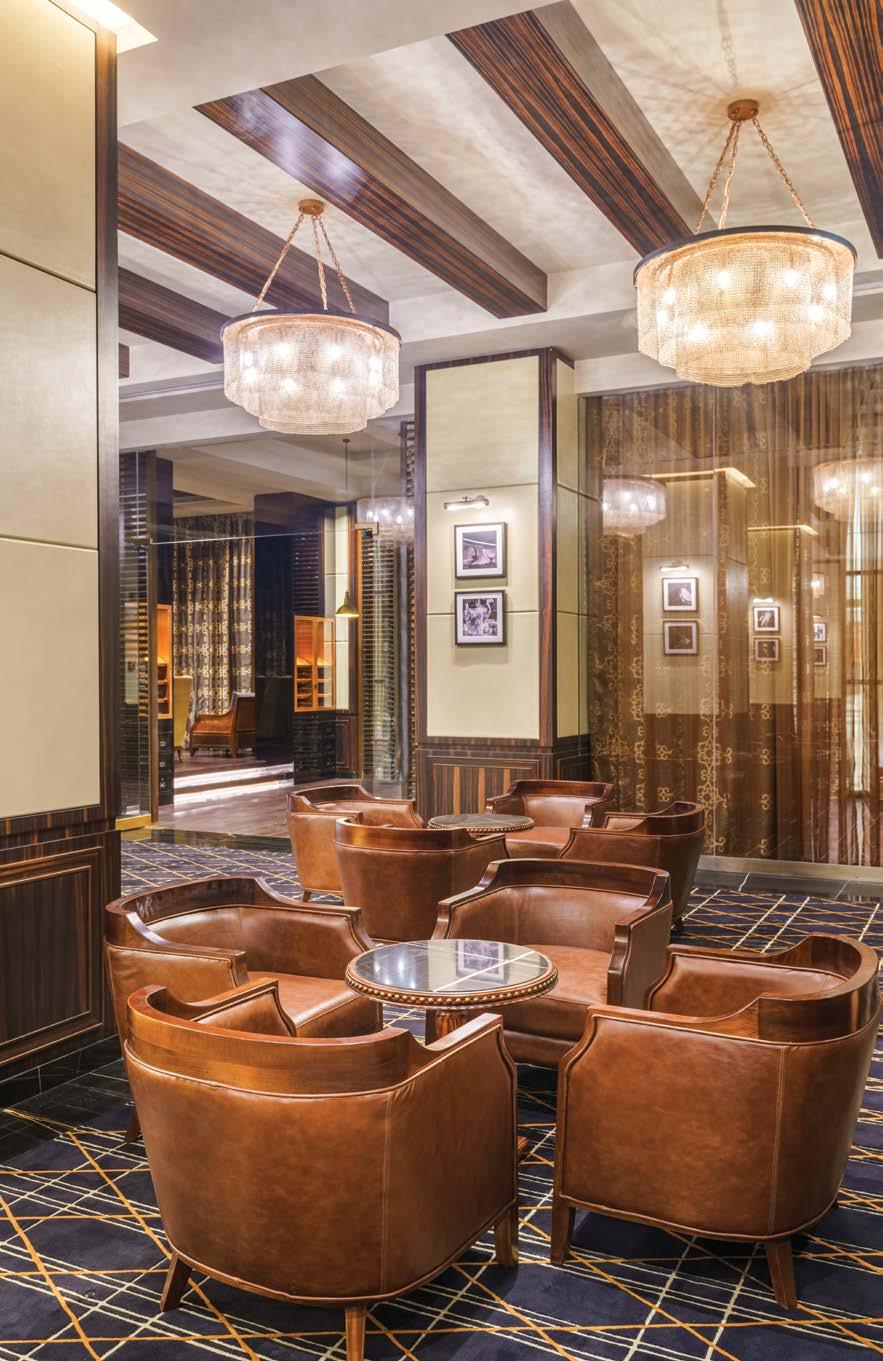
In line with this, Tulunay shares the story behind a heartfelt piece of feedback that Rixos Marina Abu Dhabi received from a family with a child on the autism spectrum. “From the moment they arrived, every detail, whether it was the calm, accommodating check-in experience or the thoughtful sensory-friendly adjustments made to their room and public spaces, was tailored to help them feel safe, comfortable, and truly at ease,” Tulunay recalls. “What resonated with us most was a line in their message, ‘For the first time in a long time, we felt like every member of our family was genuinely seen, understood, and welcomed, not just as guests, but as individuals.’ This feedback became more than just a moment of gratitude; it became a powerful reminder of the impact we can make when hospitality is delivered with intention and heart.”
His long-term vision is to position Rixos Marina Abu Dhabi as the region’s luxury ultra all-inclusive urban resort, where the serenity of a private, resort-style escape meets the energy and accessibility of the city. “We are not only reimagining the all-inclusive model but elevating it to a level where luxury, leisure, and lifestyle intersect seamlessly,” Tulunay says. With plans that include the development of splash parks, an exclusive beachfront experience with private cabanas, curated lounges, and an
ever-evolving portfolio of international culinary destinations, Rixos Marina Abu Dhabi will be a resort that serves as a cultural, social, and experiential hub. “This vision goes beyond amenities—it’s about creating a place where guests feel deeply connected, where every visit offers something new, and where we continue setting benchmarks for hospitality in the region,” Tulunay concludes
“
WE ARE NOT ONLY REIMAGINING THE ALL-INCLUSIVE MODEL BUT ELEVATING IT TO A LEVEL WHERE LUXURY, LEISURE, AND LIFESTYLE INTERSECT SEAMLESSLY.”


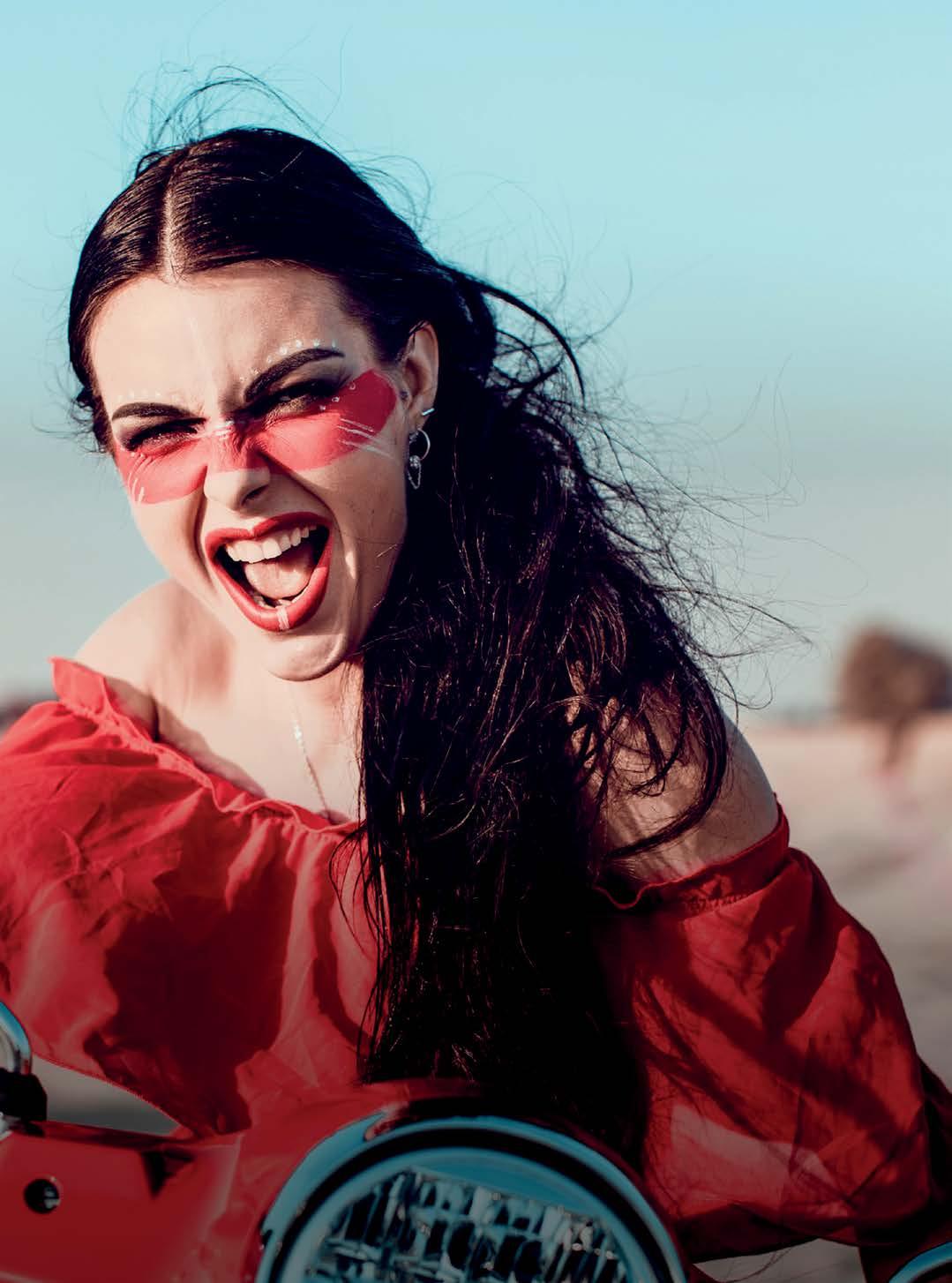
Gadgets and doodads that you might’ve missed out on, sourced by a tech aficionado. by
TAMARA CLARKE
Sony is back with premium upgrades to its WH-1000XM wireless noise cancelling headphones. With processor speeds seven times faster than its predecessor, the HD Noise Cancelling Processor QN3 fine-tunes 12 microphones in real time, delivering a dramatic leap in noise cancelling and sound quality. The precise detection of the twelve optimally placed microphones allow the noise cancellation to adapt more precisely to fit you and your environment. Whether you are looking to block out noise on a busy commute or stay focused in the office, your sound experience will be seamless and powerful. The iconic design of the WH1000X series has been taken to the next level with an
elegant, soft fit wider headband infused with vegan leather ensuring a pressure-free fit. Plus, the asymmetrical headband design makes it easy to identify the left and right side with just a glance. The earpads are designed for all-day wear thanks to stretchable material that provides a secure yet gentle fit to reduce pressure whilst blocking external noise. The headphones allow you to listen and charge all at once. Simply plug in the USB charging cable and keep listening to your favorite tunes. On the go? Even quicker charging is possible, with three minutes giving you up to three hours of charge.




Honor Magic7 Pro was made for the modern professional with everything from a large battery to cutting-edge AI enabled features. With the newly updated Magic Portal, you can access information more easily than before. Just circle an address, an event name, or a product photo on your screen, and the phone will immediately suggest the next action, whether that's booking a table, navigating to a meeting, or shopping online. The AI Translation

Nitro AI laptops are equipped with up to NVIDIA GeForce RTX 5070 Ti Laptop GPUs. Powered by NVIDIA Blackwell, GeForce RTX 50 Series GPUs offer gamers and creators game-changing capabilities. Equipped with a massive level of AI horsepower, the RTX 50 Series gives you new experiences and next-level graphics. These new Nitro AI devices come with up to 32 GB of DDR5 dual memory and PCIe Gen 4 SSDs of up to 2 TB. Both the Nitro 16 AI (AN16-61) features up to WQXGAresolution displays, blazing fast 180 Hz refresh rates, and 400 nits peak brightness. This device also comes with NVIDIA G-SYNC display technologies that help minimize the nuisance of screen tearing, stuttering and input lag for smooth frames. Cooling-wise, Nitro 16 AI is equipped with dual-fan, quad-intake and quadexhaust technology. The device’s thermal system has been given a boost with liquid metal thermal grease on the processors and vector heat pipes for optimized heat transfer.
feature, allows you to seamlessly communicate in up to 13 languages in two distinct modes – either face to face, or side by side. Furthermore, the AI-empowered HONOR Notes app can summarize any meeting in a fraction of the time it would take to do the same task by hand, thanks to the Real-time Transcript feature. It records and transcribes every word spoken and distinguishes between multiple speakers. AI Deepfake Detection built into the HONOR Magic7 Pro protects against AI-driven scams and impersonation. Equipped with an ultra-large 5850mAh battery, the HONOR Magic7 Pro ensures you power through your most demanding days with ease.
TAMARA CLARKE, a former software development professional, is the tech and lifestyle enthusiast behind The Global Gazette, one of the most active blogs in the Middle East. The Global Gazette has been welcomed and lauded by some of the most influential tech brands in the region. Clarke’s goal is to inform about technology and how it supports our lifestyles. Talk to her on Twitter @TAMARACLARKE theglobalgazette.com
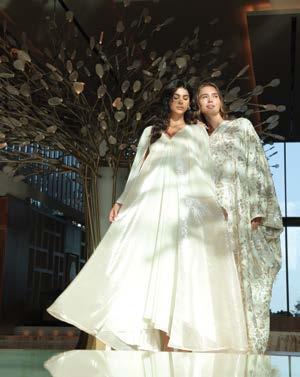
→ Style Savvy BRINGS PERSONAL STYLING TO UAE DOORSTEPS
Style Savvy, a new luxury tailoring atelier specializing in bespoke suits, shirts, and trousers for both men and women, has opened its first studio in Oud Metha, Dubai. To further elevate the customer experience, Style Savvy’s signature mobile tailoring service brings expert tailors directly to clients’ homes, offices, or hotels. Style Savvy’s offerings include one-on-one consultations, personal shopping, curated fabric selection, and multiple fittings. www.stylesavvy.com
From better goods to better wardrobe bests, every issue, we choose a few items that make the approved executive selection list. In this edition, our picks are from Style Savvy, Dima Ayad, and Heleo4.
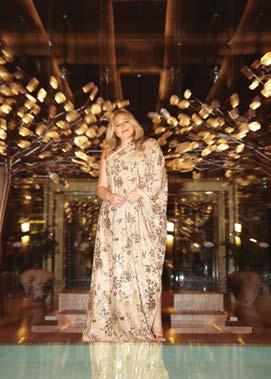
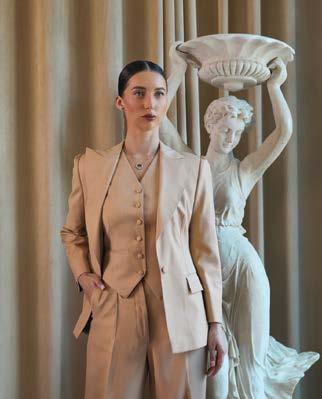
|Dima Ayad’s limited collection
Dima Ayad, a renowned Dubai-based fashion designer of size-inclusive luxury, has teamed up with Mandarin Oriental Jumeira, on Oriental Dreaming, a limited-edition collection of five bespoke kaftans,
With a deep connection to the heritage and modernity of the region, Dima’s designs celebrate individuality while embodying the elegance and sophistication synonymous with Dubai's style and innovation. These artisanal creations reflect the essence of a woman who is self-assured, radiant and limitless, much like the Silk Road itself, where every destination becomes part of a greater story. dimaayad.com
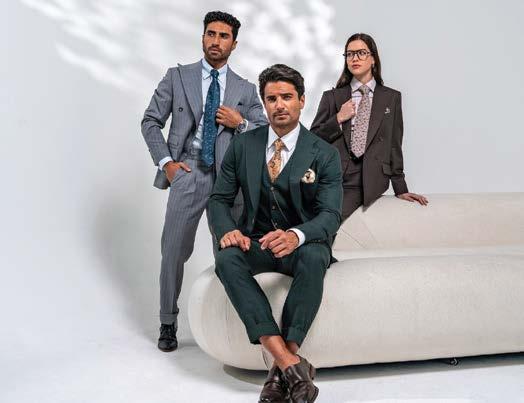
HELEO4 SKIN CELLULAR DETOX: DUBAI’S NEWEST GLOW-GETTER ↓
Tapping into the power of skincare biohacking

Dubai’s skincare scene has welcomed a transformative addition: the Heleo4 Skin Cellular Detox.
Developed by a team of international dermatologists and biochemists, Heleo4 combines advanced LED light therapy with a proprietary chlorella-based active complex. This synergy aims to detoxify skin cells, stimulate healthy cell division, and restore the skin’s natural barrier, addressing issues like inflammation, dullness, and premature aging. My treatment began with a gentle exfoliation to prepare the skin, followed by the application of the active complex. Subsequently, the Heleo Pro LED Plus device emitted light wavelengths, targeting various skin concerns.. The session concluded with a nourishing cream application, leaving the skin radiant and refreshed. I can report report noticeable improvements after just one session, including enhanced skin tone, reduced fine lines, and a healthy glow. Heleo4 Skin Cellular Detox offers a promising solution for those. If you seek to combat the effects of urban stressors on your skin, book this treatment at Evolution Aesthetics Clinic, Umm Al Sheif Road 49, Dubai. www.heleo4.com
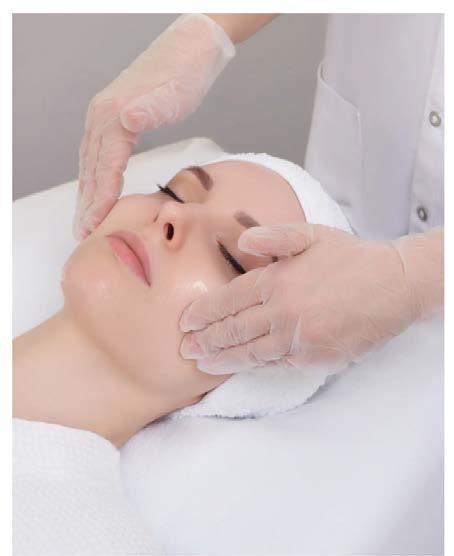

The main business event between Gulf countries and FranceMinistry of Economy and Finance
June, 17 & 18
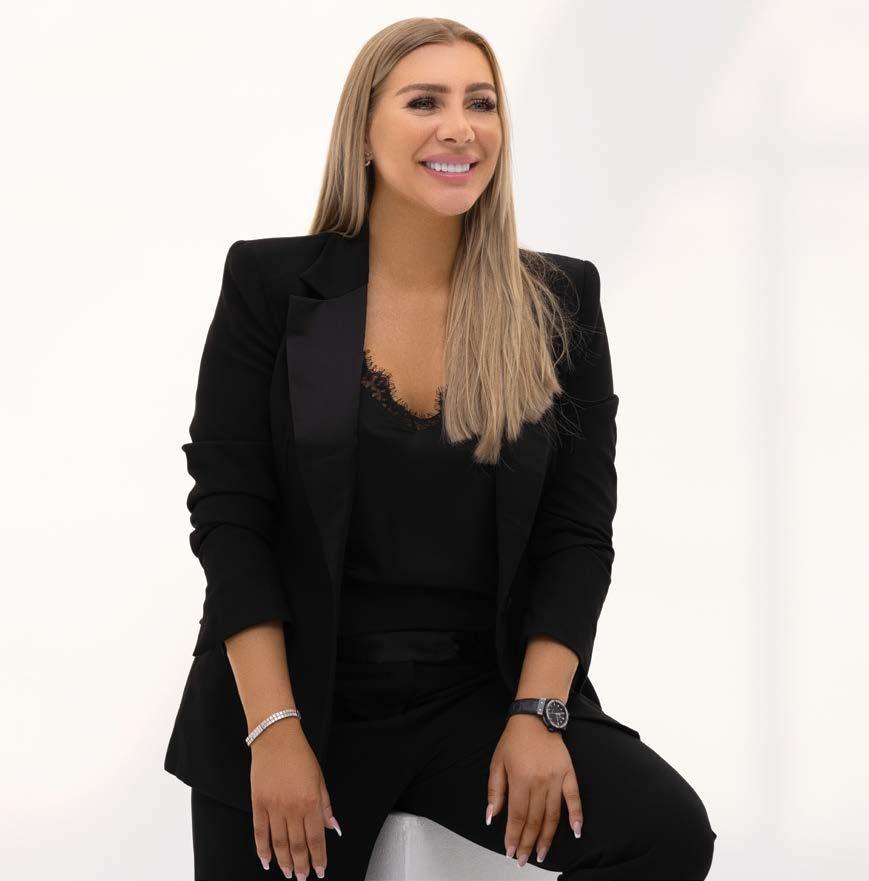
How leveraging the boutique business model in two different entrepreneurial pursuits has allowed Karin Drane to build a multi-million dollar empire (all while championing a four-day working week!). by AALIA MEHREEN AHMED
There is a certain visceral honesty that emanates from Karin Drane’s replies— even though I receive them over email. Over time, as I peruse her words, it becomes evident that it is perhaps her refusal to mince words that has allowed her to successfully build two UAE-based boutique businesses: events and talent management company Curveball Events & Talents (Curveball); and investment platform MSKD, which she co-founded with Maha Al Shamsi. The former of the two is today a multimillion dollar company that manages the likes of widely adored UAE radio personalities Kris Fade and Priti Malik. “I’m a two-time university dropout- I started with law in Sweden and then went into hospitality in
Launched in 2014, Curveball had something of a scurried start when Drane was –for the sake of getting the pun out of the way– thrown a curveball
The company thus began as solely an events management company a little over a decade ago. “Events, for me, have always been satisfying,” Drane says. “The creative S/Big Idea
just as she began working on the business idea.
“Clients needed an activation done immediately, and I had no choice but to set up the company overnight,” Drane recalls.
Dubai– I’ve always been good at starting things, less good at finishing them,” Drane reveals. “But with events, I started from the very bottom: handing out soda samples as a part-timer. That gave me a feel for what it means to work on the ground. Eventually, I was offered the chance to run an event company — and to manage the challenge, I hired my own former agent. After a steep learning curve (and a burnout to match), I realised clients were coming directly to me, and the demand was there. I had just started a full time role in petrochemicals and then I launched Curveball on the side. The job in petrochemicals taught me what real leadership looked like, and I applied those lessons, the good and the bad, to Curveball.”
“I sat down and brainstormed words that stood out, signalled speed, accuracy, and creativity, and, importantly, had both the domain and trade license available.
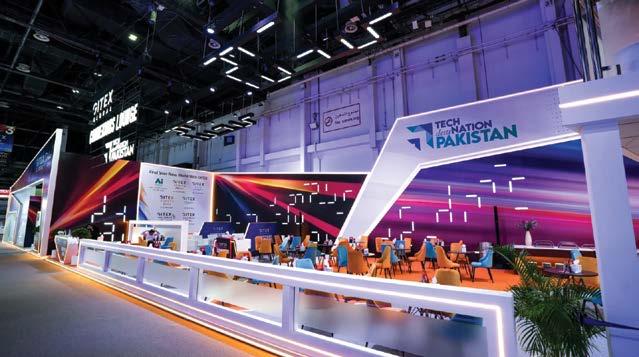
The name “Curveball” thus stuck. It’s one of those words that hold dual meaning; sometimes it’s positive and other times it has a negative connotation. I even had a cheesy tagline at the start: “Life either throws you a curveball, or you throw one at life.” In hindsight, not my finest copywriting moment but we live, we learn, and we launch anyway.”
process, the challenge of going up against the best, the adrenaline of execution, and the deep relationships you build with clients over years of working together — it’s all part of the magic. It’s a privilege to create something people remember, and still make it look effortless.”
That emphasis on building the right business foundations eventually led Drane towards a chance to manage the aforementioned Fade, a radio jockey and Netflix reality show Dubai Bling star– an opportunity which opened Curveball’s doors to the world of talent management. “One of our core strategies has always been to over-deliver rather than over-promise,” Drane says. “That mindset builds trust and in this business, trust is everything. I started out purely in events, and when the opportunity came to manage Kris Fade, I didn’t hesitate to say yes. That decision opened up an entirely new lane for us. We’ve never chased growth for growth’s sake. Instead, we’ve invested deeply in the people we work with — our clients, our talents, our team. I genuinely believe being likeable, reliable, and going the extra mile makes a difference. Relationships are the heart of everything we do.”
This sentiment has extended to the other talents Curveball manages as well- today, the company handles a number of
well-known names from across the country including Dubai Bling star Brianna Fade, radio jockey and host Brent Black, and content creator Laila Loves. Here, Drane emphasizes that achieving stardom, contrary to
their success is a result of their own hard work, consistency, and grit. We’re just the support system. We’re here to handle the chaos behind the scenes so they can shine in front of the world!”
While the talent manage-
ment vertical at Curveball took off, the agency’s events have also steadily kept creating a buzz in and across the country. “One of my favourite projects was when we transformed the Dubai Mall Ice Rink into a multi-experience zone with
WE CAN ALWAYS CHASE ANOTHER PROJECT, BUT YOU CAN’T GET TIME BACK. SO FOR ME, BALANCE ISN’T ABOUT SPLITTING TIME EQUALLY, IT’S ABOUT BEING PRESENT FOR WHAT TRULY MATTERS, WHEN IT MATTERS MOST.”
popular belief, isn’t the end goal of her business. “When it comes to talent, I believe it’s not just about fame, it’s about work ethic, attitude, and the ability to deliver when it counts,” she continues. “We have the privilege of working with the best in the business and subsequently, we’re very selective about who we represent. Most importantly, we don’t take on anyone who directly competes with our existing roster, because our priority is to look after the people already trusting us. We see our talents as family, and we take it seriously that they’ve entrusted us to support them on this journey. Talent management, at its best, is fast-paced, challenging, and absolutely life-enhancing. You’re negotiating deals, working with incredible clients, and bringing big ideas to life, all while being “never really off, but never really working,” because it’s that fun. As for our talents,
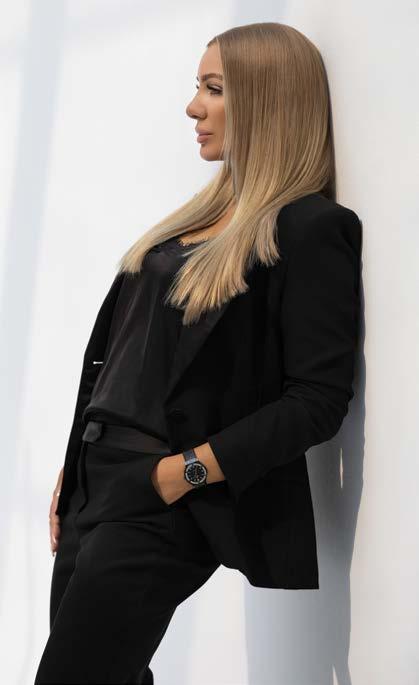
/Big Idea
a massive stage, football activations, F&B area, and lots of games,” Drane says. “We had over 120 people on-site pulling an all-nighter to get it done. The pressure was intense, but so was the sense of accomplishment. That was a turning point for me, making me reevaluate the scale of operations we could handle. But closest to my heart is probably our first major event — the first time I billed over half a million. I was incredibly proud, but also nervous. I let the client influence parts of the stage program that carried creative risk, and while the event itself was great, I overheard a senior agency exec call the reveal “a disaster.” That stung — but it was also a defining lesson in client management and trusting our own expertise. Most recently, being awarded the GITEX VIP Lounge build was a meaningful milestone. It involved a complex two-floor structure, a highly competitive request for proposal (RFP), and some of our best design and production work to date. I really enjoyed the process and seeing the end result.”
The little over 11 years that Drane has been running Curveball have allowed her to formulate her own idea of what good leadership looks like. “Give more
than you expect to get back, and work with people you actually like–that’s where the magic and the longevity comes from,” she says.
Drane’s ability to build purpose-driven connections with like-minded crowds is thus what led her towards another entrepreneurial venture- this time in the business investment space. “Over the years, I found myself becoming part of an informal network of introductions and referrals — helping connect people to opportunities, deals, and decision-makers,” Drane explains. “It wasn’t structured at first, but it became clear that there was real value in that, which was worth pursuing in a more formal, systematic way. Years ago, I connected with Maha Al Shamsi and we share very similar values both personally and professionally… MSKD was thus born from a shared vision, to build a discreet, high-level platform for investment facilitation, project introductions, and capital matchmaking across the region and beyond. At its core, MSKD is about trust, access, and long-term relationships — values that matter just as much in investments as they do in events.”
Built as a commercial brokerage that connects
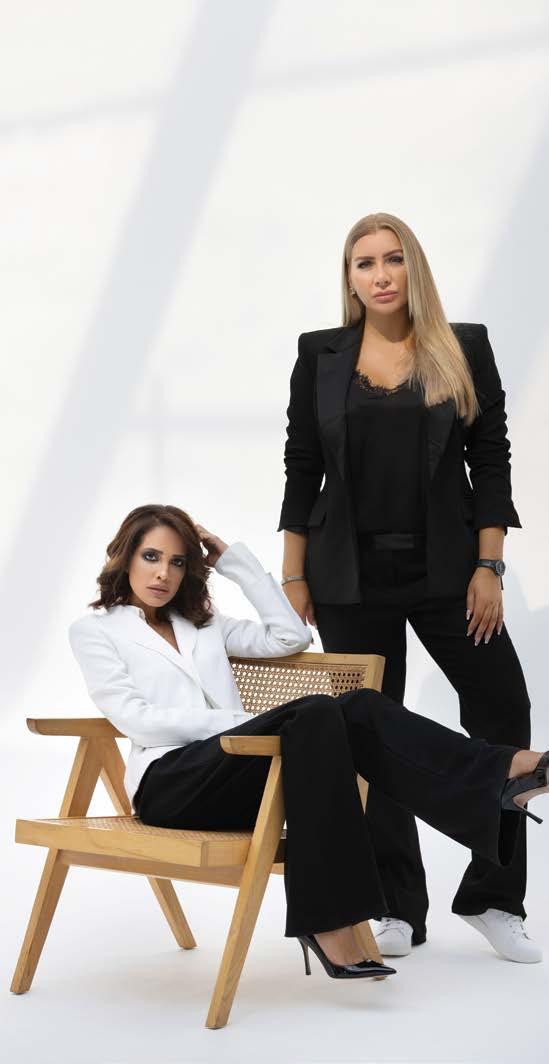
MSKD specialises in connecting the right investors with the right projects and facilitating meetings for business synergies.
investors with global opportunities, MSKD too has adopted the boutique agency model which has allowed it to maintain a level of exclusivity that isn’t typical of traditional investment bodies. “At MSKD, we act as high-level matchmakers,” Drane explains. “For example, if a client is seeking capital for a new app or business venture, we assess the proposal, and if it meets our standards, we reach out to our investor network to find the right fit. Conversely, when an investor comes to us with a clear mandate, whether it’s acquiring land, backing a business in a specific sector, or entering the UAE market, we source vetted opportunities that align with their objectives. What sets us apart is our discretion. We don’t mass-market anything. Every introduction is personal, curated, and built on trust.”
With tales of entrepreneurs juggling multiple ventures comes the inevitable question of work-life balance, or rather how they achieve it. On her part, Drane seems to have cracked the code to achieving this often elusive goal. “Truthfully? I don’t balance — I prioritise,” she says. “For many years, I kept the business running at half speed so I could spend more time with my beautiful daughters. Those moments were
everything to me, and I’ve never regretted choosing them over “growth-at-all-costs.” I try to extend that same flexibility to my team as well, because I believe life moments matter. We can always chase another project, but you can’t get time back. So for me, balance isn’t about splitting time equally, it’s about being present for what truly matters, when it matters most.”
It is this approach that Drane has extended
about give and take,” she says. “Sometimes all a person needs is to work from home in a hoodie instead of dressing up and heading to the office, and that little reset can bring them back at full speed. We’re just human. We need flexibility. With schools having shorter days and Friday prayers being a priority for many, making Fridays optional at Curveball just made sense. Our industry already demands a lot of evening and weekend
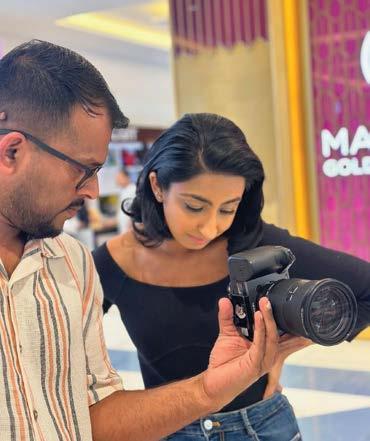
towards her employees at Curveball too, with the company having a four-day work week with flexible timings. “Business, to me, is all
everything with cake goes a long way in keeping everyone sharp and happy.”
For a company that continues to be successful in its eleventh year, this is advice that is certainly worth heeding. But Drane herself isn’t done just yet. “We’ve got plenty of exciting plans in the pipeline, but for now, we’ll just keep our heads down and let the results speak for themselves later on,” she shares. “As Elvis said: “A
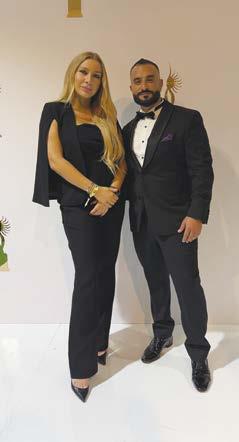
work, so why not offer a bit more freedom during the week? The result? A happier, more energised team. Flexibility and celebrating pretty much
little less conversation, a little more action, please.” As for me as an entrepreneur— I’m gearing up for full speed. 2025 is about pushing boundaries, building stronger teams, and leaning fully into what we’ve built with both Curveball and MSKD!”
S/Big Idea
Shake Your Plants founders talk about their setbacks after securing Shark Tank funding.
by JUSTIN HARPER
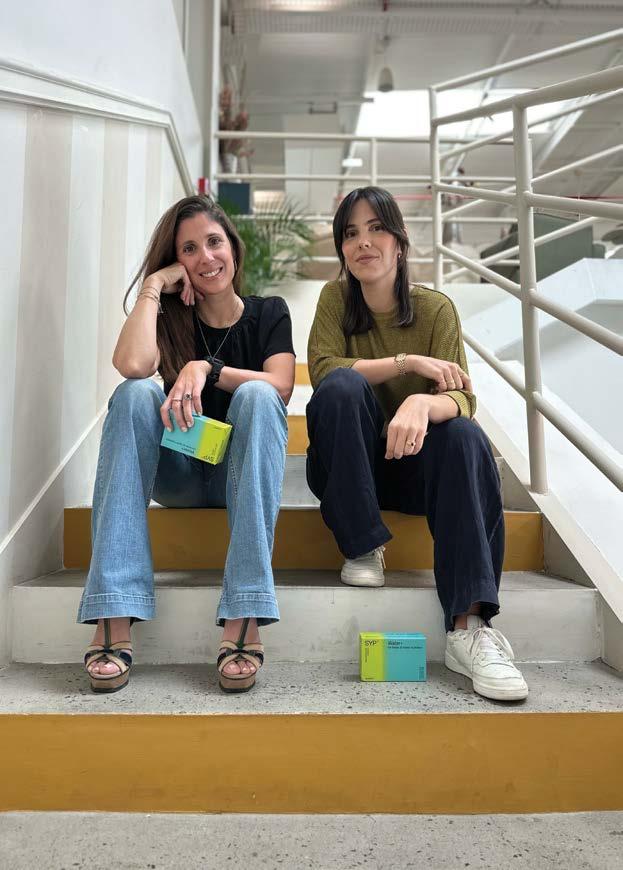
Entrepreneurs Lia Coelho and Justine Dampt have never been discouraged from their mission to launch their functional drinks startup Shake Your Plants (SYP).
And they got a huge boost with a recent appearance on Shark Tank Dubai that led to an investment of AED1.2 million from Amira Sajwani, Managing Director at DAMAC, Founder of Prypco, co-founder and COO at Amali Properties, in exchange for 20% equity in Shake Your Plants. The deal also comes with a AED2 million line of credit.
The female entrepreneurs were also offered deals from fellow Shark Tank Dubai judges Elie Khoury, CEO and Chairman at Vivium Holding, and Mona Ataya, founder of Mumzworld.
“We are thrilled to partner with Amira, whose entrepreneurial insight and strategic support will help us scale responsibly while retaining most of our equity through smart capital diversification. She is a strong advocate for female founders, and we will be very proud to be part of her portfolio companies,” said Dampt, who welcomed a new baby just two weeks prior to the show which was filmed last year.
The SYP founders have
bounced back from multiple setbacks but are now enjoying plenty of upward momentum for their brand, positioned as a clean, plant-powered alternative to sugary electrolyte drinks.
Their journey began during COVID19, when Dampt started experimenting with powders in her kitchen to make a different kind of wellness drink. “We have had a lot of challenges physically (including failed pregnancies) and what really helped us was to keep a lifestyle that was very clean and plant-based,” says Dampt.
As a health coach and certified nutritionist, she has always recommended people to add more water and more plants to their diets. So the pair started experimenting and came up with Shake Your Plants, which comes in sachets to make an instant hydration drink.
“We’re challenging people’s habits,” Coelho explains. “We want to use water as a vehicle for wellness.” This means moving beyond traditional electrolyte drinks to create products that support overall health. And they prioritize “ugly” fruits that might otherwise be discarded, turning potential waste into nutritional powerhouses, while reducing waste and their carbon footprint.
Their first major hurdle came in summer 2022 when they were forced to recall 80,000 sachets due to crystallization issues, just days before their launch. “We almost did not survive that moment,” Dampt recalls. But resilience became their trademark. Instead of giving up, they picked themselves up and recovered.
The manufacturer carried out a lengthy investigation before finally recognizing it was its mistake. “I literally sat down for two months in Germany in the office to get our money back on the product, because it was kind of like a make-it or break-it moment,” says Dampt.
“We had invested a lot of money in this product launch. All the campaign was done and we were ready to go.”

While others might have decided to quit then and there, something kicked in and the business partners pushed forward. “I don’t think we wanted to quit, because we are very resilient people. But it was very difficult because, especially in the beginning, you need to pay everything up front. So we paid for the entire production 100% upfront, and we invested everything that we had,” adds Coelho.
With summer here, hydration becomes even more vital. The SYP founders cite statistics showing that 94% of people are chronically dehydrated, and 92% lack key vitamins or minerals—a clear opportunity to make hydration functional and enjoyable.
Currently, the company offers three products focusing on gut health and hydration, and uses natural, carefully sourced ingredients. Its kombuchabased sachets incorporate elements like organic blueberries from the UK and fermented tea from Taiwan.
The products are natural, with no added sugars or artificial colors, appealing to health-conscious consumers, while each sachet costs less than AED8.50. But what truly makes Shake Your Plants stand out from the crowd? “The taste,” Lia emphasizes. “A drink has to taste delicious for people to want it.” While it sounds like a simple philosophy, creating products people genuinely enjoy consuming, not all companies get it right.
And they are starting to win fans and followers. They prefer to use micro-
influencers to spread the word on social media about their products, and some have approached SYP about doing it for free. A new product is in the pipeline at the end of the year.
“I think that it’s so important to build a strong community. Everything we’re trying to do, the way we’re communicating to people on our struggles, the running the business, we’re being very open about it. And we’re very open about the ingredients that we use,” says Coelho.
Being women founders brings its own set of challenges. “There’s no such thing as balance,” Dampt admits. “I’m a full-time founder and a full-time mum.” But instead of letting that hinder them, they’ve used it to sharpen their focus and time management. With eyes on new markets, SYP is preparing to scale into Saudi Arabia and the UK, where consumer testing is already underway. The roadmap also includes new products, targeting everything from sleep to energy, as they continue to broaden their wellness offerings.

Justin Harper is an award-winning business journalist and editor who has worked across four continents and for the biggest names in media, including the BBC, FT Business, Daily Mail, and others. He is the co-founder of The Crypto Radio and an experienced podcast host.
LinkedIn: https://www.linkedin.com/in/ harperjustin
The initiative aims to highlight promising Emirati startups in future-focused economic sectors. by ENTREPRENEUR MIDDLE EAST STAFF
On June 28, 2025, H.H. Sheikh Hamdan bin Mohammed bin Rashid Al Maktoum, Crown Prince of Dubai, Deputy Prime Minister and Minister of Defence, witnessed the launch of the inaugural
UAE Future 50 – Emirati List of Future Companies, a joint initiative between the UAE Ministry of Economy and the Government Development and the Future Office, at Dubai’s Emirates Towers.
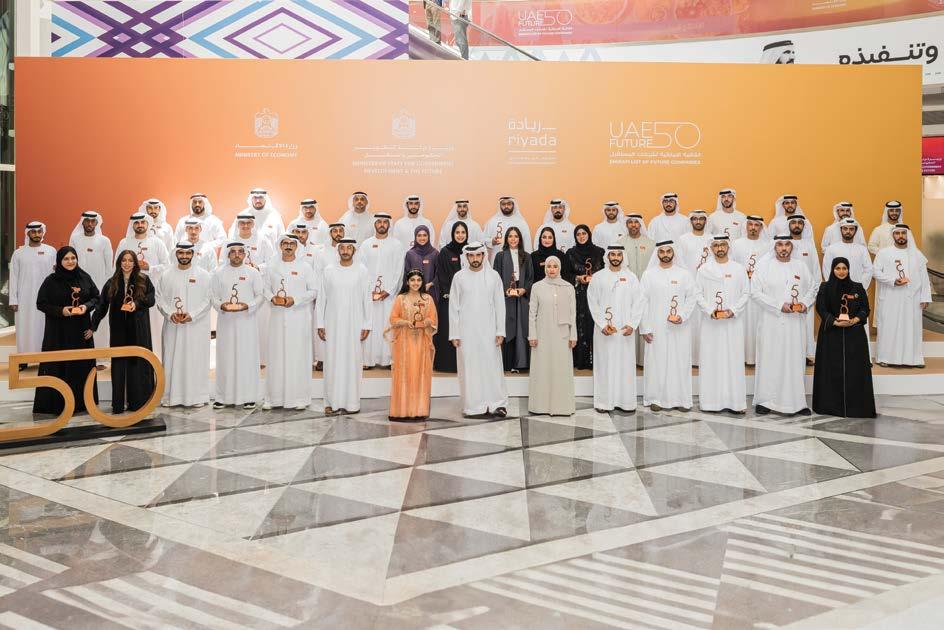
The initiative is part of the Riyada entrepreneurship ecosystem, which aims to enhance the national startup and innovation landscape.
The UAE Future 50 list identifies and lauds some of the most promising Emirati-led companies across 15 key future economic sectors such as fintech, healthtech, edtech, agritech, space, renewable energy, and cybersecurity, among others.
H.H. Sheikh Hamdan underscored the UAE leadership’s commitment to empowering entrepreneurs and fostering an economic environment that supports startups in future-focused sectors. He noted that Emirati innovators are playing a key role in driving economic diversification, advancing future-focused industries, and strengthening the nation’s global competitiveness—efforts that align with the ambitions of ‘We the UAE 2031’ vision.
He also highlighted the crucial role entrepreneurs play in turning innovative ideas into impactful ventures that drive the growth and diversification of the UAE’s rapidly evolving economy. He also stressed the importance of inspiring the younger generation to explore the world of entrepreneurship, commending initiatives that nurture and empower entrepreneurs
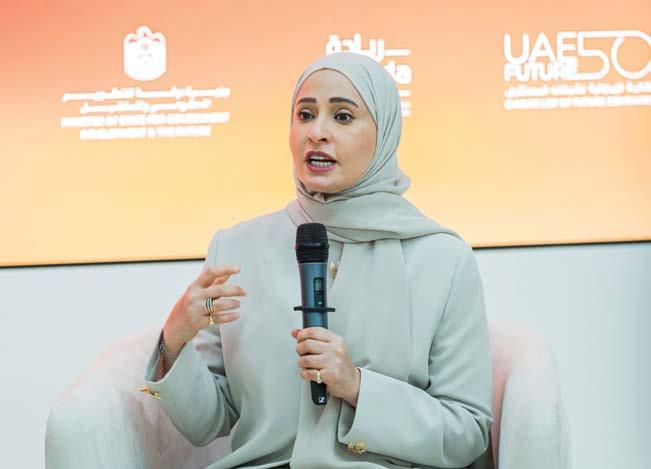
H.E.
H.E. AL ROUMI HIGHLIGHTED THE UAE’S POSITION AS A GLOBAL LEADER IN FUTURE READINESS, THANKS TO ITS STRONG INNOVATION ECOSYSTEM AND INVEST- MENT IN NATIONAL TALENT.
to reach new heights of success.
The launch was attended by Mohammad bin Abdullah Al Gergawi, Minister of Cabinet Affairs; Omar bin Sultan Al Olama, Minister of State for Artificial Intelligence, Digital Economy, and Remote Work Applications; H.E. Ohood bint Khalfan Al
Roumi, Minister of State for Government Development and the Future.
H.E. Al Roumi highlighted the UAE’s position as a global leader in future readiness, thanks to its strong innovation ecosystem and investment in national talent. She emphasised that the ‘UAE Future 50’ showcases Emirati entrepre-
neurs transforming ideas into pioneering ventures, supporting the government’s goal to prepare the economy for future challenges. She added that these startups, working alongside major companies, will drive growth in key sectors and enhance the UAE’s competitiveness and leadership worldwide.
Abdullah Al Saleh, Undersecretary of the Ministry of Economy, highlighted the crucial role of innovative ventures and Emirati talent in driving the UAE’s transition to futuristic industries and boosting its global standing. He reaffirmed the government’s commitment to creating an environment that supports sustainable
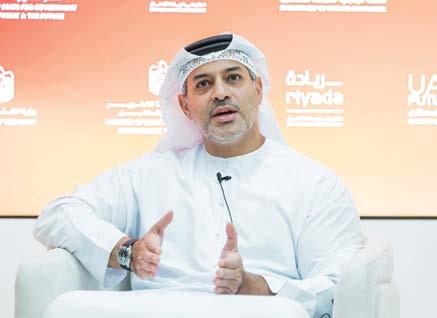
Faisal Belhoul, Vice Chairman of Dubai Chamber, and Chairman of J&F Holdings
growth and strengthens the national economy.
The initiative aims to highlight promising Emirati startups in future-focused economic sectors by providing targeted support to accelerate their growth, recognising entrepreneurial achievements, and celebrating the contributions of Emirati innovators. It also seeks to foster a strong culture of entrepreneurship and inspire the
next generation of national talent.
The launch of the ‘UAE Future 50’ was marked by a dedicated event celebrating these pioneering ventures. The gathering featured an engaging talk by Emirati entrepreneur and Dubai Chambers Board Member Faisal Belhoul, who shared insights on the foundations of entrepreneurial success and the vital role entrepreneurs play in shaping the future economy.
THE ‘UAE FUTURE 50’ BUILDS ON THE SUCCESS OF THE FUTURE 100 INITIATIVE, LAUNCHED BY THE GOVERNMENT DEVELOPMENT AND THE FUTURE OFFICE WITH THE MINISTRY OF ECONOMY.
The event brought together young entrepreneurs, investors, representatives from investment funds, incubators, accelerators, family businesses, and leading companies. It also included an exhibition of the selected start-ups, giving attendees a closer look at their innovative ideas, achievements, and growth journeys.
UAE startups have exhibited strong growth potential and play a key role in driving job creation, economic diversification, and national development objectives. Specifically chosen for their ability to boost the competitiveness of the future economy,
these companies reflect the country’s innovationdriven vision.
The ‘UAE Future 50’ builds on the success of the Future 100 initiative, launched by the Government Development and the Future Office with the Ministry of Economy. The initiative annually highlights top emerging companies advancing future-focused sectors and supports the UAE’s global standing in innovation, entrepreneurship, and investment. By recognising and empowering high-potential ventures, Future 100 contributes to shaping a resilient, diversified, and globally competitive economy.

